Don't wanna be here? Send us removal request.
Text
Unveiling the Truth Behind Forex Broker Bonuses and Promotions
In the competitive landscape of forex trading, brokers often entice traders with alluring bonuses and promotions. While these offers can be enticing, it's crucial to delve beneath the surface and uncover the truth behind forex broker bonuses and promotions. Let's take a closer look at what you need to know before diving headfirst into these offers.
Understanding Forex Broker Bonuses and Promotions
Forex broker bonuses and promotions come in various forms, including deposit bonuses, no-deposit bonuses, cashback programs, and more. These offers are designed to attract new traders and retain existing ones. While they can provide traders with additional trading capital, it's essential to understand the terms and conditions associated with these offers.
The Allure of High Leverage Forex Brokers
Some brokers stand out by marketing themselves as high leverage forex brokers. They promise the ability to trade larger positions with a smaller initial investment, potentially magnifying profits. This can indeed be tempting for traders looking to capitalize on market movements. However, it's crucial to recognize that high leverage also amplifies the risks, potentially leading to significant losses.

Reading the Fine Print
Before you jump on the bandwagon of broker bonuses, it's paramount to read the fine print. Bonuses often come with strings attached, such as minimum trading volumes or specific timeframes in which the bonus must be used. These conditions can impact your trading strategy and withdrawal options. In the case of high leverage forex brokers, bonus terms might also dictate the allowable leverage levels when using the bonus funds.
Impact on Trading Strategies
While bonuses can provide an initial boost to your trading account, they can also influence your trading strategies. Traders might be tempted to take on more substantial positions than they normally would, influenced by the potential for higher returns. In the context of high leverage forex brokers, this temptation can be even more pronounced due to the increased leverage. It's important to maintain a disciplined trading approach and not let the allure of bonuses override your risk management strategies.

Balancing Risk and Reward
When dealing with broker bonuses and promotions, it's crucial to strike a balance between risk and reward. While high leverage might promise significant gains, it's essential to assess your risk tolerance and trading experience. The potential for higher profits also entails the potential for higher losses. Responsible traders evaluate their risk appetite and ensure they can manage potential downsides effectively.
Conclusion
In the world of forex trading, broker bonuses and promotions can be a double-edged sword. While they offer the potential for additional trading capital, they also come with terms and conditions that can influence your trading decisions. High leverage forex brokers might accentuate the allure of these offers, but it's important to approach them with caution.
Before embracing a broker's bonus offer, carefully read and understand the terms. Consider how the bonus might impact your trading strategy and risk management for Best Crypto Tax Software . Remember that responsible trading involves a holistic approach, considering not only potential rewards but also potential risks.

In the end, your trading success hinges on your ability to make informed decisions and manage your trades effectively. While broker bonuses and promotions can be enticing, they should not be the sole reason for choosing a broker. Instead, prioritize factors like regulatory compliance, trading platforms, spreads, and customer support. By approaching bonuses with a critical mindset and integrating them into a well-thought-out trading plan, you can navigate the forex landscape with confidence and integrity
0 notes
Text
Navigating the Forex Broker Landscape: Key Factors to Consider
When it comes to venturing into the world of forex trading, one of the most critical decisions you'll make is choosing the right forex broker. With a plethora of options available, it can be overwhelming to identify the perfect fit for your trading needs. To simplify this process, let's explore the key factors you should consider while navigating the forex broker landscape.
Regulatory Compliance and Security
Before diving into the exciting world of trading, it's imperative to ensure the safety of your investments. Regulatory compliance plays a vital role in this aspect. Reputable forex brokers are regulated by recognized financial authorities, such as the US Commodity Futures Trading Commission (CFTC), the UK Financial Conduct Authority (FCA), or the Australian Securities and Investments Commission (ASIC). These regulations are in place to protect traders from fraud and unethical practices. When researching potential brokers, prioritize those who adhere to stringent regulatory standards.

Trading Platforms and Tools
The trading platform serves as your gateway to the forex market. A user-friendly and feature-rich platform can significantly enhance your trading experience. Look for brokers that offer robust trading platforms like MetaTrader 4 (MT4) or MetaTrader 5 (MT5), which provide advanced charting tools, technical indicators, and the ability to execute trades seamlessly. High leverage forex brokers often offer these platforms to cater to traders seeking amplified trading opportunities.
Spreads, Fees, and Commissions
Trading costs can impact your profitability, so it's crucial to understand a broker's fee structure. Spreads, the difference between the buying and selling prices, are a primary source of revenue for brokers. Lower spreads are generally favorable for traders, as they reduce transaction costs. Additionally, inquire about any commissions or hidden fees that might be associated with specific trades or account types. High leverage forex brokers often attract traders with competitive spreads and transparent fee structures.
Available Trading Instruments
A diverse range of trading instruments allows you to explore various market opportunities. While forex pairs might be your primary focus, consider brokers that offer a broader selection of assets, such as commodities, indices, and cryptocurrencies. This enables you to diversify your portfolio and adapt to different market conditions.

Customer Support and Assistance
In the fast-paced world of forex trading, reliable customer support is essential. You might encounter technical issues, require assistance with your account, or have questions about trading strategies. Choose a broker that offers responsive customer support through multiple channels, including live chat, Best Crypto Tax Software, email, and phone. A broker's commitment to addressing your concerns promptly can make a significant difference in your trading journey.
Conclusion
Selecting the right forex broker is a pivotal step that can greatly influence your trading success. Consider factors such as regulatory compliance, trading platforms, spreads and fees, available trading instruments, and customer support when evaluating different options. Remember that not all brokers are created equal, and what works for one trader might not work for another. Take your time to research and compare various brokers, and ensure that your chosen broker aligns with your trading goals and preferences.
In your search, you might come across various brokers, including those promoting themselves as high leverage forex brokers. These brokers offer traders the ability to magnify their positions, potentially leading to amplified profits. However, remember that while high leverage can amplify gains, it can also intensify losses. It's crucial to approach high leverage trading with caution and a solid risk management strategy.
In conclusion, the forex broker you choose should be a partner in your trading journey, providing the tools, support, and security you need to navigate the dynamic forex market effectively. By considering the key factors mentioned above and conducting thorough research, you'll be better equipped to make an informed decision that aligns with your trading objectives.
0 notes
Text
Forex Brokers And Their Role In The Global Currency Market
The world of foreign exchange trading is a fascinating one, with billions of dollars traded daily across the globe. But what exactly are forex brokers and how do they fit into this complex landscape? Let's take a closer look at these professionals and their important role in the global currency market.
Forex brokers are financial intermediaries who provide an online platform for traders to buy and sell currencies. They represent clients’ interests by executing trades on their behalf based on market prices, taking a small commission or fee in return. As such, they play an essential part in connecting buyers and sellers from all over the world, allowing them access to profitable opportunities that would otherwise be unavailable due to geographic distance or limited capital resources.
In today's interconnected economy, it's never been more critical for investors to have reliable access to quality forex services. With so much money being moved around daily, having the right broker can maximise profits while minimizing risks. In this article, we'll discuss the features of different types of forex brokers and tips for choosing the best one for you.

Definition Of Forex
Forex, short for foreign exchange, is the global currency market. It's where currencies from different countries are traded against each other. This includes buying and selling of major world currencies such as US Dollars (USD), Euro (EUR), British Pound (GBP) and Japanese Yen (JPY). The forex market is open 24 hours a day, five days a week, making it one of the most liquid markets in the world.
For those looking to participate in this highly lucrative market, understanding how forex works is essential. Forex brokers offer services that enable traders to buy and sell various currencies with ease. These brokers act as intermediaries between buyers and sellers by providing access to multiple trading platforms via their websites or applications. They also provide quotes on current currency prices and help traders make informed decisions based on technical analysis tools available through these platforms.
Forex brokers serve an important role in the global currency market; without them, it would be difficult for individual investors to take part in this fast-paced marketplace.
Types Of Brokers
There are two main types of forex brokers: Market Makers and ECNs. Market makers act as intermediaries between buyers and sellers in the currency market, providing liquidity and setting prices. They make money by taking a spread on trades they execute. This means that when you buy or sell through a market maker, you pay more than if you were to trade directly with another trader. ECN (electronic communications network) brokers offer direct access to the interbank market without having to go through an intermediary. These brokers provide their clients with greater price transparency since they can see all bids and offers from other traders, but they may charge higher commissions for this service.
One key advantage of using a broker is that they handle all aspects of executing your trades, such as accessing the best available prices in the marketplace and ensuring compliance with applicable regulations. Brokers also typically have access to advanced trading platforms, which allow them to quickly identify opportunities in the market based on automated analysis tools and real-time data feeds. Additionally, many brokers offer additional services such as margin accounts, stop-loss orders, hedging capabilities and research resources designed to help customers make informed decisions about their investments. All these features can be invaluable for those looking to maximize returns or manage risks associated with foreign exchange transactions.

Leverage And Margin Trading
Leverage and margin trading are two key concepts that forex brokers use to enable traders to maximize their gains. By leveraging, or borrowing capital from a broker at an agreed upon rate in order to gain access to larger positions, traders can increase their buying power. This allows them to purchase more currency than they could normally afford with the money they have available.
The other side of the equation is margin trading, which involves depositing funds with a broker as collateral for a given position. These funds must be held in the account until the trade is closed out and any losses incurred by the trader are covered. Margin trading allows traders to take on greater risk while also potentially increasing their profits since they are able to open larger trades without having to deposit additional funds into their accounts.
Overall, leverage and margin trading provide forex traders with increased options when it comes to managing their investments. They allow investors to open larger positions and take on extra risk while still maintaining control over their own finances and limiting potential losses if things don't go as planned.
Role In The Global Currency Market
Having discussed leverage and margin trading, it is now important to discuss the role of forex brokers in the global currency market. Forex brokers are essential players in this vast financial market as they serve as intermediaries between buyers and sellers. They provide access to a range of currencies by allowing traders to place orders without having full knowledge of the process or even having direct contact with each other.
The main function of forex brokers is to facilitate trades, helping clients execute their transactions securely and quickly. They keep up-to-date records of all transactions which allows them to monitor prices and identify trends that can be used for profitable trading decisions. Furthermore, these brokers offer advice on how best to use leverage, providing assistance when needed. This helps reduce risk for investors who may be unfamiliar with the markets or lack experience in trading foreign currencies.
Lastly, forex brokers also offer educational services such as webinars and seminars designed to help traders learn about different aspects of the forex market, including technical analysis, fundamental analysis, risk management strategies and more. With proper guidance from experienced professionals, newcomers can become well-informed participants in this lucrative but competitive industry. In addition to teaching valuable skillsets related to successful trading activities, these resources empower individuals with increased confidence when making investment decisions that could potentially lead to higher returns over time.

Analyzing Financial Reports
Analyzing financial reports is a key part of forex trading. By understanding the performance of an organization, traders can assess whether to buy or sell its currency. Financial reports provide investors with insights into an organization's operations, including information on its income, expenses and balance sheet.
Financial statements are divided into two categories: primary financial statements and supplemental financial statements. Primary financial statements include the balance sheet, which shows assets and liabilities; the income statement, which reveals revenue and expenses; and the cash flow statement, which provides insight into how money flows in and out of the business. Supplemental financial statements give more detailed information about certain aspects of the company’s finances such as inventory levels or debt structure.
By analyzing these documents carefully, traders can gain valuable insights into how companies operate their businesses and what kind of risk they may be exposed to. This helps them make informed decisions when it comes to trading currencies on the global market. Traders should always consult professional advice before making any investment decision based on these documents.
Regulation And Licensing Requirements
Forex brokers must meet certain standards of regulation and licensing to legally operate in the global currency market. This is a critical factor when selecting a broker, as it ensures that clients' funds are safe and secure. Here are four things you should consider when researching forex brokers:
It's important to make sure that your chosen forex broker has all necessary licenses and approvals required to operate within their jurisdiction before making any investments. Additionally, check out reviews online to get feedback from other traders who may have had experiences with particular brokers. It is wise to take advantage of these resources as they can provide invaluable insight into how reliable a company really is.
The global currency market offers many opportunities for investors; however, it’s essential to ensure that you select a trustworthy forex broker who meets all applicable regulations before investing your hard-earned money. Doing thorough research beforehand will give you peace of mind knowing that your funds are secure and help maximize your profits over time.
Different Platforms Used By Brokers
Forex brokers play a pivotal role in the global currency market, and one of their most important functions is to provide trading platforms for users. These platforms allow traders to make orders and monitor developments on the foreign exchange markets.
There are many different types of forex trading platforms used by brokers, each with its own advantages and disadvantages. The main platform categories include web-based, desktop-based, mobile-based, virtual private server (VPS), copy trading and social trading platforms.
Platform
Advantages
Disadvantages
Web-Based
Accessible from any device connected to the internet; no download required
Limited customization options; slow response times during high traffic periods
Desktop-Based
High degree of customizability; fast processing speeds due to direct connection to servers
Requires installation on local computer or VPS; not accessible outside designated device(s) without remote access software installed
Mobile-Based
Can be accessed via smartphone or tablet devices anytime/anywhere; great for active traders who need constant updates while away from their desktops/laptops
Reduced functionality compared to other versions due to smaller screensizes; slower execution than desktop counterparts due to wireless connections being prone to latency issues
VPS Hosting Service (Virtual Private Server)
Copy Trading
Social Trading
All these platforms have their respective advantages and drawbacks depending on the user's needs and preferences. For example, if you're an active trader who needs real time data updates regardless of where they are, then a mobile app would serve best. On the other hand, if you prefer a more comprehensive analysis suite but don't mind having it installed locally or remotely via a VPS hosting service then this could be the right choice for you instead. Ultimately it comes down to what features you prioritize when selecting your preferred platform type.
Choosing A Broker
Choosing a broker is an important decision for any trader. It's essential to find one that is reliable and provides the services you need. There are several factors to consider when choosing a broker, such as fees, trading platforms, customer service, research tools, and regulatory compliance.
Fees can vary greatly among brokers. Some offer commission-free trades while others may charge commissions or annual fees. Fees should be weighed against the features offered by each broker and compared with other brokers on the market.
Trading platforms allow traders to execute orders quickly and easily. Many reputable brokers have their own proprietary trading platform but some also support third party software like MetaTrader 4 (MT4) or Ninja Trader. Different types of accounts may have different access levels to these platforms so it’s important to be aware of this before selecting a broker account type.
Customer service is critical in forex trading since issues can arise at any time due to market volatility. A good broker will provide 24/7 customer service via telephone, email or chat with knowledgeable staff who can assist with queries about deposits, withdrawals, technical problems etc., promptly and professionally. Research tools are also important for successful forex trading; make sure your chosen broker has up-to-date news feeds from major financial outlets as well as charts and real-time quotes from all relevant markets around the globe .
Finally, always ensure that your chosen brokerage firm holds valid licenses approved by appropriate regulatory bodies such as FINRA in the US or FCA in the UK - anything less could leave you vulnerable to fraudsters operating outside established rules and regulations! With these considerations in mind, choosing a quality broking partner shouldn't be too difficult – just take your time doing your due diligence to avoid disappointment later down the line!
Advantages And Disadvantages
Moving on, it's important to understand the advantages and disadvantages of forex brokers. Forex brokers are financial intermediaries that stand between traders and the currency market. They provide certain services such as providing access to trading platforms, researching information about different currencies and markets, offering advice related to investing strategies, executing trades on behalf of clients and more. As a result, they have become an integral part of the global currency market.
The primary advantage of working with a broker is that they provide professional expertise in foreign exchange transactions. Brokers can offer valuable insights into which pairings may be profitable or not at any given time, allowing traders to optimize their returns. Additionally, since brokers execute trades for clients in real-time, traders don't need to spend hours monitoring the currency markets themselves while still being able to capitalize on short-term fluctuations when necessary. This provides greater flexibility compared to other types of investment vehicles where investors must wait until set periods before making adjustments or taking profits from their investments.
On the other hand, there are some drawbacks associated with using a broker too. For one thing, fees charged by brokers typically cut into profits earned through successful trades - no matter how small those fees may seem at first glance. In addition, brokers may also increase risk if they advise inexperienced traders to invest beyond what would be considered prudent based on their level of experience or knowledge about the marketplace. Finally, depending on who you choose as your broker; conflicts of interest could arise if said broker is compensated for recommending specific trading instruments over others or engaging in activities like high frequency trading (HFT).
It's essential then that potential customers take their time researching potential options carefully when selecting a broker so as to ensure they get all the benefits while avoiding any unanticipated risks down the line.
Risk Management Strategies
Risk management is an essential part of any trading strategy. Forex brokers are no exception, as they have to constantly monitor market conditions and be aware of potential risks while also keeping their clients informed about them. By properly managing risk, forex brokers can help their clients protect themselves from unnecessary losses due to currency fluctuations or other unforeseen events. This can ultimately lead to increased profits for both the broker and their client.
One key aspect of successful risk management is understanding leverage. Leverage refers to using a small amount of capital to control larger positions in the foreign exchange market. Leverage allows traders to open much larger trades than if they were just investing with their own funds; however, it also increases the level of risk associated with those trades since gains and losses will be magnified accordingly. For this reason, forex brokers must ensure that all trades involving leveraged products are properly monitored so that they do not overextend themselves financially.
In addition, forex brokers should educate their customers on how best to manage risk through proper money management techniques such as setting stop-loss orders and taking profits when appropriate. These strategies limit the downside risk by capping total losses during a trade, thus allowing traders to stay in longer trends without risking too much capital at once. Proper money management can significantly reduce the chances of experiencing large losses which could potentially wipe out all gains made in previous profitable trades.
Forex brokers play a vital role in helping traders understand and implement effective risk management strategies so that they may increase their chances of achieving long term success in the foreign exchange markets.
Frequently Asked Questions
What Is The Minimum Amount Of Money Required To Start Trading With A Forex Broker?
When it comes to investing in the global currency market, one of the most important questions to ask is what is the minimum amount of money required to start trading with a forex broker? The answer to this question varies from broker to broker, but generally speaking there is no set number. Traders are free to open an account and deposit as little or as much funds as they would like.
That being said, some brokers may require a certain level of funding before they will activate a trader’s account. This can range anywhere from $100-$500 depending on the broker's individual requirements. Additionally, many brokers offer promotional incentives for new traders who meet their minimum balance requirement such as bonus points or even cash bonuses.
It’s also worth noting that regardless of how much capital you have available for trading purposes, having access to a reliable Forex brokerage service is essential if you want to make successful trades in FX markets. A good Forex Broker should provide research tools and educational resources including live streams and webinars so that traders can become more informed about current market conditions before making any decisions regarding their investments. Many online platforms also provide simulated accounts where users can practice their strategies without risking real capital - another great way to get comfortable with foreign exchange trading without taking too big of a risk upfront.
In summary, although there isn't necessarily a ‘set’ minimum investment when starting out in the forex market, different brokers may have varying requirements depending on their own policies and services offered. It's always best to do your research beforehand so you know exactly how much capital you need in order to get started with your chosen provider – not only will this help ensure your success as an investor but it will also give you peace of mind knowing that your funds are secure throughout all stages of your trading journey.
What Is The Difference Between A Market Maker And An Ecn Broker?
When it comes to trading currencies on the global market, there are two types of forex brokers: market makers and ECN (electronic communication network) brokers. Both offer access to currency pairs on the markets but they have different approaches when it comes to executing trades. So what is the difference between them?
Market maker brokers provide a platform for traders by providing bid-ask spreads as part of their service. This means that if you're looking to buy or sell a currency pair, the broker will take care of matching buyers with sellers, thus creating an effective marketplace. As such, these brokers often charge commissions for orders and also require minimum account balances in order to start trading.
ECN brokers, meanwhile, are more like middlemen who facilitate direct connections between buyers and sellers without having any influence over pricing themselves. They allow traders to place orders directly onto the interbank market where liquidity providers compete against each other in real time, offering competitive variable spreads which can be much lower than those offered by traditional market makers. Additionally, ECN brokers don’t require any minimum account balance so they may be preferable for beginner traders who don't want to risk too much capital right away.
In summary, both types of forex brokers have advantages and disadvantages depending on your specific needs. Market makers tend to charge higher commission fees and usually require larger initial deposits whereas ECN brokers offer tighter spreads and no minimum deposit requirements at all - making them ideal for newbies starting out with smaller amounts of capital.
Are There Any Additional Fees Associated With Trading Through A Forex Broker?
When it comes to trading through a forex broker, you may be wondering if there are any additional fees associated. The answer is yes; depending on the type of account or service you opt for, some forex brokers may charge certain fees in addition to commissions. This article will explore these extra charges and how they affect your overall trading costs.
The first fee that could potentially be charged by a forex broker is an overnight holding fee. This is sometimes referred to as “rollover” and is applicable when you hold open positions overnight. Essentially, this fee covers the cost of carrying over trades from one day to another, which can also have an impact on your profits or losses. Another possible additional cost is a margin requirement, which applies when traders use leverage to increase their exposure in the market. Lastly, you might run into administrative fees such as transfer fees or account maintenance costs.
It's important to note that not all brokers include these types of fees in their pricing structure so it's worth doing your due diligence before committing to a particular provider. You should always read the terms and conditions carefully and understand what kind of trading costs you'll face before getting started with a broker. By familiarizing yourself with the different kinds of fees involved in forex trading ahead of time, you'll be better prepared to make informed decisions about where best to invest your money.
Are There Any Customer Support Options Available Through Forex Brokers?
When it comes to trading in the foreign exchange (forex) market, working with an online forex broker can make all the difference. Choosing a reliable and reputable partner is key for success – but so too is ensuring that you have access to customer support when needed. Here are some of the most important things to consider:
Finding the right forex broker should involve researching each potential partner thoroughly before signing up; this includes taking into account not only fees associated with trading but also available customer support options offered by each one so that you're well equipped ahead of time in case something unexpected arises during your trading journey. As investing in foreign currency carries risk, being aware of the resources available to assist you along the way can really pay off and give traders an edge over those without these tools at their disposal.
How Do I Know If A Particular Forex Broker Is Legitimate And Trustworthy?
When choosing a forex broker, it's important to consider whether or not the broker is legitimate and trustworthy. After all, if you're going to invest your money in an online forex trading platform, you want to make sure that your funds are secure and protected from any potential fraud or scam. But how can you tell if a particular forex broker is reliable?
One way to do this is by researching the company's background, credentials, and experience. Most reputable brokers will have detailed information about their operations readily available on their website. This could include financial statements, customer reviews, regulatory compliance documents, and more. By looking through these materials, you should be able to get a better understanding of how the company operates its business as well as its track record when it comes to providing customers with satisfactory services. Additionally, many brokers will also offer third-party testimonials from current clients who have used their services before. These reviews can provide helpful insight into what kind of experiences other people may have had with the brokerage firm.
Another way to assess whether a forex broker is legitimate or not is by checking for membership in any official regulating bodies or associations related to the foreign exchange market. It's always wise to use only those brokers that are registered with official agencies such as The National Futures Association (NFA) or Financial Industry Regulatory Authority (FINRA). Membership in one of these organizations indicates that the company has satisfied specific requirements related to transparency and honesty within its operation - thus making them more likely than non-membership companies when it comes to offering safe trading environments for traders like yourself.
Being informed about a prospective forex broker’s reputation and qualifications can help ensure that your investments remain secure while still giving you access to potentially lucrative opportunities found in the global currency markets. Taking time out of your day to research different brokers carefully can undoubtedly pay off down the road – so don't forget this crucial step when selecting which one best suits your needs!

Conclusion
In conclusion, when it comes to trading in the global currency market, Forex brokers play an integral role. Understanding how they work and what you need before getting started is essential. The minimum amount of money required varies by broker but is usually relatively low. There are two main types of brokers: Market Makers and ECN Brokers – each with advantages and disadvantages. Additionally, additional fees may be associated with using a broker, which you should be aware of beforehand. Lastly, for peace of mind, make sure the broker you choose is legitimate and trustworthy by looking into customer support options and reading reviews online. All these considerations will help ensure that your experience trading with a Forex broker is prosperous and secure.
0 notes
Text
The Evolution Of Forex Brokers And What It Means For Traders
For the modern trader, Forex brokers have become a crucial part of their trading journey. But what many don't realize is that these brokers have evolved considerably over time - with significant implications for traders today. In this article, we'll explore how Forex brokers have changed and why it matters to you as a trader. We'll look at growing competition in the industry, new technologies driving changes, and the impact on your own trading experience. So if you want to stay ahead of the curve and make sure you're making full use of all available opportunities, read on!

Definition Of Forex Brokers
Forex brokers are intermediaries that facilitate the trading of foreign currencies in the global currency market. They provide services to both retail and institutional traders, giving them access to a range of platforms and tools they can use to trade effectively. Brokers also offer leverage which allows traders to increase their buying power without having to deposit large amounts of cash upfront.
Traditionally, forex brokers were financial institutions such as banks or investment firms who acted as middlemen for clients wishing to transact in foreign exchange markets. With advances in technology, online forex brokerages have emerged offering direct access trades through their own proprietary platforms or those provided by third-party providers like MetaTrader 4 (MT4). These types of brokers usually charge lower fees than traditional ones due to their reduced overhead costs.
Today, there's a variety of different types of forex brokers available ranging from non-dealing desk (NDD) brokers who route orders directly into the interbank market all the way up to ECN/STP brokers with multiple liquidity pools connected via Electronic Communications Networks (ECNs). This provides traders with more choice when it comes to finding a suitable broker for their particular needs.
History Of Forex Brokers
The history of Forex brokers is an interesting one. It has been a long and winding road for the industry, with many changes occurring over time. Let's take a look at some of the most significant developments that have taken place in this ever-evolving world:
Today, there are numerous types of Forex brokers ranging from full service brokerage firms offering comprehensive solutions tailored specifically for large institutions all the way down to discount brokers catering mainly towards smaller retail clients looking for low cost execution only services. No matter what type of trader you are, you can be sure that there will always be a suitable broker out there ready to serve your needs effectively while adhering to regulatory requirements at all times.
Impact Of Online Technology On Forex Trading
The development of online technology has had a tremendous impact on the Forex trading market. It has allowed traders to access global markets, easily and quickly execute trades, and take advantage of real-time data and analysis tools. With advances in technology, brokers have been able to offer more competitive pricing structures, improved customer service, automated order flows, and even copy-trading capabilities. This has enabled retail investors to trade forex with ease from almost anywhere in the world. Furthermore, many brokers now offer mobile apps that allow customers to monitor their accounts and make trades conveniently from any device.
The availability of such wide range of services means that it is important for traders to shop around when choosing an online broker. They should look at fees charged by different brokers as well as other features they provide such as platform usability, educational resources or customer support options available. Additionally, some brokers may specialize in certain types of strategies like scalping or day trading while others might be better suited for longer term investments.
In addition to traditional currency pairs offered by most forex brokers, there are also alternative instruments available such as cryptocurrencies which can bring new opportunities for profitable trading despite being highly volatile assets. Brokers must ensure that they are compliant with regulations related to digital currencies since these vary significantly across countries so making sure your chosen provider offers appropriate services is essential before you start trading.

Regulatory Requirements
The impact of online technology on forex trading has been immense. It has revolutionized the way brokers and traders interact, allowing for more efficient ways to conduct business. However, while new technology makes it easier to access markets, there are still important regulatory requirements that must be adhered to in order to ensure that all transactions remain fair and secure.
Table 1 | Regulatory Requirements: | Requirement | Explanation | |-------------|-------------------------------------| | AML/KYC | Anti-money laundering & Know Your Client Procedures | | Risk Management | Ensuring trades do not exceed capital or risk limits | | Safety of Funds | Keeping customer funds separate from broker's operating capital |
Regulatory authorities such as CySEC, ASIC, FCA, NFA etc., have established a range of rules and regulations governing the activities of forex brokers in specific countries. These include measures related to anti-money laundering (AML) and know your client (KYC) procedures which must be followed by any regulated broker looking to legally operate within their jurisdiction. Additionally, they set out strict guidelines around risk management processes ensuring that no trades can exceed certain pre-defined capital or risk limits; this is done to protect both investors’ money as well as the reputation of brokers themselves. Finally, these organisations also require that all customer funds are kept completely separate from the broker’s own operating capital at all times for added safety and security.
By enforcing these stringent measures across each aspect of their operations, forex brokers can provide clients with greater confidence when conducting business through them knowing that their investments will always remain secure whilst simultaneously increasing their chances of making profitable long term investments. As technology continues to evolve however so too do the demands placed upon those responsible for its regulation – meaning that it falls upon individual companies themselves to ensure they continuously keep up-to-date with current legislation in order maintain their regulatory compliance status going forward.
Different Types Of Brokers
Brokers are the gatekeepers of the Forex market and come in a range of types. They provide traders with access to trading platforms, liquidity providers, and other services. The three main types of brokers are Market Makers, ECN Brokers, and STP/DMA brokers.
Market makers make money by hedging their own trades against those made by clients. This type of broker provides trading opportunities while also taking on some risk. By doing so they can offer competitive spreads and often times no commissions. However, because these brokers take positions opposite their clients, there is a conflict of interest that may lead to slippage or other problems for traders using them.
ECN (Electronic Communications Network) brokers allow direct access to interbank prices without any interference from the broker themselves. These brokers charge fees per trade but tend to have lower spreads than market makers as they don’t need to hedge their own trades. As such they are well suited for scalpers and high frequency traders who require extremely tight spreads and low latency execution speeds.
STP (Straight Through Processing)/DMA (Direct Market Access) brokers use technology to pass orders directly onto liquidity pools rather than through an internal dealing desk like Market Maker or ECN brokers do. This means that all client orders get passed unchanged straight onto liquidity providers which then execute the order at whatever price is available in real time meaning faster execution speed with minimal slippage occurring when news events move markets quickly. While this type of broker tends to have slightly higher spreads than ECNs due to having more overhead costs associated with setting up their system correctly, it's still one of the most popular choices amongst professional forex traders seeking reliable pricing and ultra-fast order execution speeds without resorting to less regulated offshore firms.
These different types of Forex brokers each bring something different to the table depending on what kind of trader you are; understanding which one best fits your needs will help ensure success in your journey into currency trading markets around the world.
Advantages And Disadvantages Of Using A Broker
Now that we have reviewed the different types of forex brokers, let’s examine some of their advantages and disadvantages. Generally speaking, a broker can provide traders with access to tradeable assets on the global markets. This includes currency pairs, stocks, options, commodities and more. Brokers also offer trading platforms which allow users to place trades in real time.
One major advantage of using a broker is that it allows individuals to take part in high-risk investments without having to commit large amounts of capital upfront. Leverage is often available through most brokers meaning traders can increase their exposure by borrowing funds from them. Additionally, many brokers now offer educational resources such as webinars and tutorials so new users can learn how the market works before putting their money at risk.
On the other hand, there are several downsides to consider when choosing a broker. Many charge fees for services like account maintenance or deposits/withdrawals, while others may require minimum deposits before allowing you to begin trading. Furthermore, depending on where you live some brokers may not be regulated or insured meaning your funds could potentially be at risk if something were to happen to the company itself or its servers went offline unexpectedly.
It's important for all traders - both experienced and novice - to thoroughly research any potential broker they're thinking about working with before making any commitments. By doing this they'll ensure they get the best service possible while minimizing their risks associated with foreign exchange investing.
Leverage And Margin Requirements
Leverage and margin requirements are two of the most important considerations for any forex trader. Leverage is essentially a loan offered by brokers to traders, allowing them to increase their buying power and take larger positions in the market. This can be incredibly helpful if used responsibly, but it also carries an inherent risk as losses can quickly mount up with highly leveraged trades. Margin requirements refer to how much capital must be deposited by a trader before they can open a position on the Forex market. Generally speaking, higher leverage means lower margin requirements, giving traders access to more funds than what would typically be required when trading without leverage.
From the early days of online forex trading, brokers have gradually increased both their maximum allowable leverage and reduced margin requirements. Today some brokers offer account levels where traders can access up to 1:1000 in terms of maximum available leverage while only requiring very low margins as deposits. On one hand this provides many advantages for traders who wish to take advantage of large amounts of leverage or trade using smaller accounts; however, such high levels of leverage come at great risk should prices move against the position held by the trader.
The evolution of broker offerings over time has paved the way for new opportunities for forex traders around the world that simply did not exist previously due to limited options for leveraging and margining capabilities provided by brokers themselves. As with any financial decision though, there is always a balance between potential reward and risk which needs to be carefully weighed before entering into any type of transaction involving money or assets.
Fees And Commissions Charged By Brokers
Fees and commissions are a major factor for traders when choosing their broker. Brokers typically earn revenue by charging fees or commissions on trades as well as spreads, which is the difference between the bid and ask price of an asset. This can have a significant impact on traders' profits, so it's important to understand how brokers make money and what fees they charge.
Overall, understanding all these different types of fees and commissions charged by forex brokers is essential for successful trading since they will have an impact on profitability and risk management strategies. To maximize returns while minimizing losses, traders should always compare broker fee structures before making their decision about where to trade currencies online.
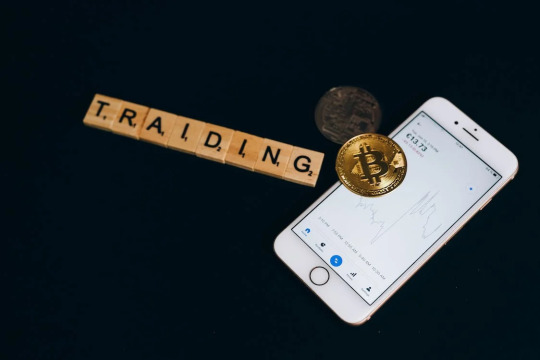
Finding The Right Broker
Finding the right broker is essential for any forex trader. It's important to do your research and find a reputable one that meets all of your needs. Start by looking at their regulations, fees, trading platforms, customer service and more.
It’s also key to make sure they have good reviews from other traders who have used them in the past. Read up on forums and check out what customers are saying about them. This will give you an insight into how reliable the broker is before you sign up with them.
In addition, it’s worth asking questions if there’s anything you don’t understand or feel uncertain about when selecting a broker. Don't be afraid to shop around until you find the best fit for you - after all, this is likely where most of your trading capital will go!
Implications For Traders
Now that we have a better understanding of the evolution of forex brokers, it's time to explore what this means for traders. With the increasing sophistication and complexity of trading platforms and technology, there are both opportunities and challenges for traders.
First, advanced technology provides an opportunity for investors to trade more efficiently with greater accuracy and faster execution times. Additionally, automated systems can provide access to global markets without requiring significant manual intervention or capital investment. Furthermore, increased transparency in pricing ensures that traders get optimal prices on trades. This leads to lower costs per transaction which ultimately translates into higher profits for traders.
The challenge lies in finding the right broker who can meet your needs and help you achieve success as a trader. It is important to do thorough research before choosing a broker so that you can make sure they offer all the features necessary to build a successful trading strategy. You should also be aware of any extra fees associated with their services as these could end up significantly cutting into potential profits if not taken into account beforehand. Finally, it pays dividends to stay informed about current industry trends by reading market news and staying abreast of technological developments related to online trading platforms.
In summary, while forex brokers have come a long way over the years and offer many advantages for today’s traders, careful consideration must still be given when selecting one as each individual may have different requirements from their broker in order to be successful.
Frequently Asked Questions
What Are The Most Important Criteria To Consider When Selecting A Forex Broker?
When selecting a forex broker, there are several important criteria to consider. From the range of products offered and the trading conditions they provide, to their level of customer service and security measures, each factor is essential when deciding on an appropriate trading partner.
The first thing to look at is what kind of services they offer. Do they have access to the markets you want to trade in? What type of spreads do they charge? Are there any additional fees or commissions involved? Are the platforms user-friendly and intuitive for traders? All these questions need answers before committing to a particular broker.
It’s also worth checking out how reliable their customer support is. 24/7 multi-lingual assistance should be available as well as email, telephone and online chat options – anything less than that could become problematic if something goes wrong with your trades. Additionally, it's important to make sure your funds are secure; research which regulatory body regulates them and whether deposits are kept segregated from operational capital or not.
Finally, review all their policies so you know exactly what you’re signing up for:
Does The Broker Offer Customer Service In My Language?
When it comes to selecting a forex broker, customer service is an important factor. Does the broker offer assistance in your language? If you don't understand English or another common trading language such as French or Spanish, having access to support that speaks your native tongue is invaluable.
It's also important to consider if the brokers' customer service staff can provide adequate help when needed. Do they have experienced traders on their team who can answer questions and provide advice when necessary? Is their response time fast enough for the type of trades you perform? These are all things to take into account before choosing a broker.
In addition, does the platform offer automated features like stop loss protection? This ensures that even if you experience technical difficulties while trading, there will be safeguards in place so that any losses won't exceed what you had predetermined as acceptable risk levels. All these factors should be taken into consideration when deciding which broker best suits your needs.
How Much Capital Do I Need To Open An Account?
When it comes to investing in the forex market, one of the most important questions a trader can ask is how much capital they need to open an account. This is a key factor that will determine their success as a forex trader and help them avoid unnecessary risks.
The amount of money necessary for opening an account depends largely on the type of broker chosen and the minimum deposit required by each individual broker. Some brokers have no minimum deposits at all, while others require up to $10,000 or more. It's also important to consider any other fees associated with setting up an account such as commissions, leverages, spreads and so forth before making your decision.
In addition to considering these factors when deciding how much money you'll need to open an account, traders should be sure to research the different types of accounts available from various brokers in order to find the best fit for their trading goals and needs. Understanding what kind of services are offered by each broker is another critical element in finding the right FX brokerage - taking into consideration customer service options such as multi-lingual support teams, educational resources and automated tools which may vary among different providers.
Taking time to do this research upfront can save investors a lot of headache down the line and ensure that they're well prepared for successful forex trading experience.
Are There Any Hidden Charges Or Fees Associated With Using A Forex Broker?
Are there any hidden charges or fees associated with using a forex broker? This is an important question to ask before committing to working with one. When trading currencies, you want the most transparent and cost-effective process possible. Here's what you should know about potential hidden costs:
Forex brokers are vital partners in helping traders navigate foreign exchange markets successfully. With careful consideration given to their services and pricing structures, traders can ensure they get the best value when opening accounts with brokers and avoid unnecessary surprises along the way. By understanding all costs associated with each provider upfront—both visible and hidden—you can make informed choices while minimizing risks going forward.
Is It Possible To Trade On Margin Without A Broker?
Trading on margin without a broker is an attractive prospect for some traders, as it allows them to increase their potential returns by leveraging larger positions with only a small amount of upfront capital. But what are the risks associated with trading on margin without a broker?
The biggest risk is that there is no one to help you manage your positions and ensure that losses don't get out of hand. When trading on margin, you could end up owing more than you have in your account if the market moves against you. This can easily put you in financial ruin if proper caution isn’t taken.
Another downside to trading on margin without a broker is lack of access to resources like research reports and automated alerts. Brokers often provide these services at an additional cost, but they can be invaluable tools when navigating the choppy waters of the Forex markets. Without any guidance or assistance, inexperienced traders will likely find themselves quickly overwhelmed and unable to make informed decisions.
In order to successfully trade on margin without a broker, it's essential to understand all the risks involved and take extra precautions such as setting strict limits on how much money can be risked per position and using stop-loss orders whenever possible. Even then though, novice traders may still struggle due to lack of experience or knowledge about the markets - making brokerage services potentially indispensable for those wanting to trade safely and profitably in this highly volatile environment.

Conclusion
In conclusion, selecting a Forex broker is an important decision that requires careful consideration. As a trader, you need to ensure the broker meets all of your criteria and provides customer service in your language if needed. Additionally, consider how much capital you'll need to open an account and any fees associated with trading through the broker. Lastly, it's possible to trade on margin without a broker but this isn't recommended as there are risks involved.
Overall, when choosing a Forex broker I recommend doing plenty of research beforehand and seeking advice from experienced traders who have used them before. By taking these steps you can ensure that you find the right match for you based on your individual needs. Plus, once you feel comfortable with your selection you can start trading confidently knowing that it’s the right choice for me.
Selecting the right Forex broker will give me peace of mind so I can focus on my trades rather than worrying about hidden charges or other issues. With the evolution of brokers over time, traders now have more options than ever before which can make finding one easier than ever before!
0 notes
Text
Top Forex Brokers For Beginners: Which Ones To Consider
Are you looking to start trading forex but don’t know which broker is best for you? With countless options available, it can be difficult to decide. That's why we've put together this guide on the top forex brokers for beginners so that you can make an informed decision and get started with confidence.
When choosing a broker, there are many factors to consider. You'll want one who provides excellent customer service, reliable trading platforms, low fees, and quality educational resources. Finding the right balance of these elements isn’t easy! But fear not - here we’ll go over each of them in detail so that by the end of this article you’ll have all the information needed to choose your perfect broker.
So if you're ready to take your first steps into the world of forex trading, then read on to learn about some of the best brokers out there for beginner traders!

Definition Of Forex Trading
Forex trading is a form of investment that involves speculating on the value of one currency against another. It's also referred to as foreign exchange, or FX for short. Forex traders buy and sell different currencies in an attempt to make profits from market fluctuations. This type of investing can be done through online brokers and private banks.
Trading currencies require knowledge of the economic landscape, analysis of trends, and forecasting future price movements. To do this successfully, it’s essential to stay up-to-date with news events and industry reports. In addition, having access to reliable technical tools such as charts, indicators and automated strategies are highly beneficial when making decisions about which markets to trade in.
It’s important to note that forex trading carries significant risk due to its high leverage rates; therefore you must always consider your financial circumstances before entering into any trades. With proper education, understanding and experience though, there may be potential rewards if you're able to manage these risks effectively.
Factors To Keep In Mind When Selecting A Broker
When selecting a forex broker for beginners, there are several important factors to consider. Firstly, it's essential to ensure that the broker is regulated by an official financial regulatory body like the SEC or CFTC in the US. This will help guarantee that your funds and data remain safe and secure with them. Secondly, make sure you read reviews online from other traders about their experiences with the broker so you can get a better feel of how reliable they may be.
Furthermore, check out what kind of trading platform and tools each broker offers as these could have an impact on your overall success when trading currencies. Also look into what kind of educational resources they provide such as webinars and tutorials which could prove invaluable if you're just starting out. It's also worth considering whether any fees or commissions charged by the brokers affect your profitability negatively or positively depending on your trading frequency and style.
By assessing all these points carefully before making a choice, you'll be able to select a top-notch Forex broker best suited to meet your individual needs as a beginner trader.
Leverage And Spreads
When it comes to forex trading, leverage and spreads are two of the most important factors. Leverage is a financial instrument that allows traders to gain access to larger amounts of capital than they have available in their accounts. Spreads refer to the difference between the bid and ask prices for any given currency pair. For beginners, understanding these concepts can be quite daunting; however, it’s worth committing time to studying them as both play an integral role when it comes to successful trades.
The amount of leverage offered by brokers varies significantly from one broker to another. Beginners should look out for those offering higher levels of leverage since this will allow them more flexibility when trading with smaller sums of money. That said, inexperienced traders should exercise caution as too much leverage can increase risks dramatically if not managed properly. As such, newbies should ensure they understand all the associated risks before proceeding with high-leverage trades.
Similarly, spreads can also vary greatly depending on which broker you choose. Lower spread costs mean higher profits so choosing a broker who offers competitive pricing is crucial. Furthermore, some brokers offer commission-free or zero-spread services but bear in mind that other fees may still apply regardless of what type of account you open with them - make sure you read through all the small print first! To summarise: finding a good broker means researching thoroughly and taking into account not just cost but quality of service too.
Types Of Accounts Available
When deciding which forex broker is right for you, it's important to consider the types of accounts available. Here are some of the most common ones:
It's essential that you choose an account type suited to your goals and experience level – this way you can maximize your potential when trading forex. Different brokers offer different features so make sure you do your research before making any decisions!
Trading Platforms Offered
When it comes to trading platforms, the right one for you will depend on your particular needs. Forex brokers provide a variety of options for beginners, from basic web-based interfaces to sophisticated trader tools and charting packages. Most brokers offer both MetaTrader 4 (MT4) and cTrader as their main platforms, with each offering its own strengths and weaknesses. MT4 is popular amongst experienced traders due to its extensive range of features, while cTrader is great for those who are new to forex trading or want something simpler.
Mobile apps can also be used by beginner traders in order to access markets on the go. Many brokers now offer mobile versions of their platforms which allow traders to trade anywhere they have an internet connection. These apps usually come with some additional features such as price alerts and charts that may not be available through the desktop version.
In addition to these more traditional trading platforms, there are numerous other third-party providers that offer specialized software designed specifically for forex trading. These programs often include advanced technical analysis capabilities and automated trading systems that can help novice traders make better decisions when entering into trades. They typically require a subscription fee but many brokers provide them free of charge as part of their services.
Fees And Commissions
When it comes to forex trading, fees and commissions can have a significant impact on your profits. And when you’re just beginning in the world of forex, understanding these charges is essential for making informed decisions. Here are some of the top brokers for beginners when it comes to fees and commissions:
Broker
Fees & Commissions
Minimum Deposit
eToro
No commission
$200
FXCM
Low commission
$50
FBS
Zero spread
$1
eToro offers no-commission trades and has a minimum deposit requirement of only $200. This makes it an ideal choice for beginner traders who want to test the waters without investing too much money right away. Meanwhile, FXCM offers low commissions but requires a minimum deposit of $50. For those with extremely limited funds, FBS offers zero spreads which means there are no additional costs incurred while trading. However, this broker requires a minimum deposit of $1 so make sure that you check all requirements before signing up with any one broker.
Overall, choosing the best forex broker for beginners depends on a variety of factors such as fees and commissions structure, regulatory oversight, customer service quality and more. Regardless of what type of trader you are or how much capital you start off with - consider researching each online brokerage firm individually to find out their own unique pricing models and features to ensure that they meet your individual needs.
Education And Resources
When it comes to learning about Forex trading, education and resources are essential. Beginners should take advantage of the many online educational tools available to them that can help get started in Forex trading. There are plenty of free courses, videos, tutorials, webinars, ebooks and other materials out there that new traders can use to gain an understanding of how Forex works.
In addition to these free resources, experienced traders may also benefit from paid membership programs or subscription services offered by some brokers. These often include additional features such as market analysis tools, automated strategies and more detailed information on strategy development. Such services could prove invaluable for beginner traders who want to learn quickly and become successful at their chosen profession.
It is important for beginners to do research into any broker they consider using before investing real money into a live account with them. The best forex brokers will provide reliable customer service, reasonable fees, low spreads and access to various markets worldwide. It's also worth reading reviews from other users so you can make sure the broker has your best interests in mind when helping you trade successfully.
Support Services
When it comes to finding the best forex brokers for beginners, support services are an important factor. It's essential that traders have access to reliable customer service in case they encounter any issues while using a broker’s platform or need assistance with trading strategies. Most of the top forex brokers offer round-the-clock customer support and provide multiple channels through which customers can contact them such as live chat, phone, email, and social media platforms.
The quality of customer service is just as important as its availability. There should be knowledgeable staff who will be able to answer questions and resolve any technical problems quickly and efficiently. The language barrier should also be taken into consideration when selecting a broker; some may only provide support in certain languages so make sure you check this before signing up.
In addition to customer support, many brokers offer additional resources such educational materials like webinars and seminars, demo accounts where traders can practice their skills without risking real money, tutorials on how to use their software, market analysis tools, news feeds etc. These extra features can help improve your trading experience significantly by providing valuable information about the markets and helping you stay informed about changes in prices and trends. All these factors combined should give you enough insight into whether the broker is suitable for your needs or not.
Regulatory Compliance
When selecting a forex broker, it’s important to consider their regulatory compliance. Many brokers are regulated by multiple governmental bodies around the world. These regulatory agencies monitor and oversee all aspects of the broker’s operations in order to protect traders from unethical practices such as fraud or market manipulation. To ensure you receive protection and fair treatment, make sure that your chosen forex broker is licensed by reputable organizations like the Financial Conduct Authority (FCA) or National Futures Association (NFA). Additionally, check to see if they have any additional certifications that demonstrate their commitment to ethical trading practices.
It's also helpful to look into how long the broker has been operating. A longer track record may indicate better experience in providing services for beginner traders. In addition, research reviews online to get an idea of what other people think about this particular broker and read through their terms and conditions carefully before signing up with them. This will help you determine whether they offer competitive spreads, fees and commissions as well as provide adequate customer service support should anything go wrong during your trading journey.
In short, when choosing a top forex broker for beginners be sure to do your due diligence on each one of them so that you can select the most suitable option for your own personal needs. Make sure that they meet all necessary regulations and possess adequate licensing requirements while offering comprehensive customer service support along with competitive rates and fees structures.
Customer Reviews
Moving on from Regulatory Compliance, Customer Reviews are an important consideration for a Forex Broker. It is essential to research what current and past clients have experienced when dealing with the broker. This can be done by reading online reviews or asking around in trading forums.
The customer reviews should tell you about how responsive the support team of the broker is and if they provide helpful advice. Additionally, it will also give insight into any problems that traders may have faced while using their services, such as slow execution times or difficulty withdrawing funds. The more reliable and trustworthy brokers typically receive higher ratings and positive feedback from users, so this is something worth looking into before making your decision.
It's also important to remember that not all reviews are true reflections of a broker’s performance – some may be biased or exaggerated based on individual experiences. Therefore, it's best to take these comments with a grain of salt and focus instead on aggregated scores given across multiple sources. Doing so will help ensure that you make an informed choice when selecting which Forex Broker is right for you.

Frequently Asked Questions
What Trading Strategies Should I Use As A Beginner?
As a beginner to trading, it can be difficult to know where to start. One of the most important factors when beginning is understanding which strategies are best suited for your goals and objectives. When deciding on the right strategy, there are several things to consider:
It's also helpful to look into different types of trading strategies that may work for beginners such as swing trading, day trading, scalping, and trend following. Swing traders typically hold positions for days or weeks; they focus on identifying potential price swings rather than attempting to capitalize on quick gains from volatile markets. Day traders aim to take advantage of short-term price movements by entering and exiting positions within a single session—often over just minutes or hours. Scalpers use smaller time frames like one-minute charts with tight stop losses designed to minimize risk while aiming for small but frequent profits throughout the day. Finally, trend followers seek out larger price moves because they attempt to capture longer-term momentum shifts in the markets instead of focusing on shorter duration trades found in other strategies.
No matter which strategy you choose, it’s essential that you stay disciplined in order to make sure your returns remain consistent over time. Make sure that whatever strategy you utilize stays aligned with your overall financial goals so that you can maximize your success as a trader going forward!
Is It Possible To Start Trading With A Small Amount Of Capital?
Starting any investment journey can be intimidating, and forex trading is no exception. One of the most common questions beginner traders ask is whether it's possible to start with a small amount of capital. The answer is an emphatic yes! Though you'll need more money than that to actually open a position in the market, there are plenty of brokers out there who offer low minimum deposit requirements so even those just starting out can get involved.
In addition to finding a broker with low minimum deposits, understanding your own risk tolerance will help determine how much money you should invest initially. If you have some experience investing and understand what kind of losses you're willing to accept, then you may want to start off with a larger sum for greater potential returns. On the other hand, if this is your first foray into investing then keeping things conservative by going with a smaller amount may be best until you gain more confidence.
When considering different brokers, take into account their fees as these can add up quickly over time and eat away at any profits earned from successful trades. Consider also the trading platform offered - does it have all the features needed for analysis? Does it include access to automated software? Is customer support available 24/7? These are important factors when selecting which broker works best for you and your needs as a trader.
The bottom line is that while starting small might limit your gains, it doesn't mean they won't exist or that trading isn't worth exploring further down the line once more knowledge and confidence has been gained. With careful research into various brokerage firms on offer plus an honest assessment of one’s own risk profile, getting started in forex trading can become not only achievable but potentially profitable too.
How Long Does It Take To Become A Successful Forex Trader?
One of the most common questions asked by those who are interested in forex trading is, "How long does it take to become a successful forex trader?" The answer isn't always clear-cut and depends on many factors.
It's important to understand that becoming an experienced, profitable forex trader takes time, effort and dedication. Achieving success in currency trading requires practice, knowledge and discipline. It can take months or even years for someone with little or no experience to develop their skills sufficiently enough to consistently generate profits from trading currencies.
The amount of time required will depend on several things including how much capital you have, what type of strategy you're using, your level of risk tolerance, as well as the amount of time available for research and study. As such, there’s no single answer to this question - some traders may be able to achieve success quicker than others depending upon these various factors.
Nevertheless, all traders should strive to continually increase their knowledge base while honing their craft over time so they can maximize the potential rewards associated with successfully navigating the foreign exchange markets.
Is There Any Risk Involved With Forex Trading?
When it comes to trading foreign currency, the question of risk always arises. Forex trading involves speculation on price movements in global markets and there is no guarantee that your trades will be profitable. It's important to understand how much risk you are taking when investing in forex, as well as any strategies you can use to minimize losses.
To better understand the potential risks associated with forex trading, let’s look at some of the most common types of risk. Market risk relates directly to changes in market conditions that could affect a trader’s ability to generate profits or suffer losses from their investments. Currency-specific risk is also an issue for traders, since different currencies have varying levels of volatility and liquidity which could lead to significant gains or losses depending on current market trends. Additionally, other external factors such as geopolitical events may also impact forex prices and create additional risks for investors.
It's important to note that even though there is inherent risk involved with forex trading, this doesn't mean that you should avoid it entirely. With proper research and sound money management practices like setting stop loss orders and diversifying portfolios, you can mitigate many risks associated with forex trading while still being able to take advantage of its potential rewards. Ultimately, understanding the risks involved before getting started can help ensure your success as a trader over time.
Are There Any Tips Or Tricks For Achieving Consistent Profits?
Navigating the world of Forex trading can be intimidating for beginners, but with a little knowledge and some practice it can become an exciting endeavor. One key to succeeding in this market is to consistently achieve profits. So are there any tips or tricks that traders should employ? Let’s take a look.
The most important tip when it comes to achieving consistent profits is to create and stick to a sound strategy. This means having well-defined entry points, exit points, stop losses, risk management plans and so on. It may also mean focusing on certain currency pairs over others, or even only trading during specific times of day. A trader should always have a plan before entering into a trade - otherwise they run the risk of making costly mistakes due to lack of research or inexperience.
Another crucial factor in attaining consistent profits from Forex trading is discipline: staying focused and disciplined while trading can help prevent rash decisions which could end up costing money rather than earning it. It's also essential to remain informed about current events related to the markets – news such as economic reports and political developments can cause sudden shifts in prices; keeping track of these will ensure you are able to capitalize on them as quickly as possible. Finally, don't forget the importance of finding good software tools that make analysis easier – charting programs, automated robots etc., all serve their purpose in helping investors maximize potential returns while minimizing risks associated with trades.
Success at Forex trading takes more than just luck – dedication and hard work are also necessary ingredients for success! As long as traders stay true to their strategies, keep abreast of global news affecting their markets, use helpful software tools and maintain discipline within their trades, they stand a much better chance at achieving consistent profits within today's ever-evolving financial landscape.

Conclusion
As a beginner, it's important to understand the basics of forex trading. Developing your own trading strategy and taking advantage of risk management tools can help you become successful in this industry. There are many top-rated brokers available that offer favorable conditions for beginners, which makes it easier to get started with small amounts of capital.
However, even experienced traders need to be aware of the risks involved with forex trading. It takes time, dedication and discipline to achieve consistent profits over the long term. That’s why I highly recommend doing plenty of research before investing any real money and finding a broker who provides excellent customer service and educational materials as part of their offering.
At the end of the day, becoming a successful forex trader is no easy feat. You must be willing to put in the effort, learn from mistakes and keep up-to-date on market developments if you want to consistently make profitable trades. With enough practice and dedication, anyone can start making money through forex trading!
0 notes
Text
The Importance Of Transparency In Forex Brokers
Are you curious about forex trading, but uncertain where to start? You're probably looking for a trustworthy broker to help get your investments off the ground. As you likely know, transparency is key when it comes to brokers and their services. To make sure you find the right one, let's take a look at the importance of transparency in Forex Brokers.
The foreign exchange (Forex) market is an ever-changing landscape that offers plenty of opportunities for investors around the world. With so much motion taking place, it can be difficult to keep track of all the different aspects involved – especially with regards to selecting a broker. It’s important for potential clients like yourself to understand what makes some brokers more reliable than others, which brings us back to why transparency matters.
When evaluating any financial service provider such as a Forex broker, there are specific criteria we must consider — including fees and commissions charged, customer service options available and other features such as bonuses or promotions offered. All these factors come together to form the overall trustworthiness of each broker. Transparency plays a crucial role in this trust-building process; without clarity on how they operate and provide services, many traders simply wouldn't feel comfortable investing their money in them!

Definition Of Forex Brokers
Forex brokers are financial intermediaries who provide access to the foreign exchange markets. They act as a go-between for traders and banks, allowing individuals to buy and sell currencies with leverage. Forex brokers usually offer their services through an online platform or by telephone. The primary role of forex brokers is to facilitate trading in the global currency market.
The most important aspect of working with a broker is trustworthiness. A reputable broker should be able to provide transparency regarding their fees, policies, terms of service and execution times. It's also essential that they adhere to strict regulations governing the industry, such as those set out by the Financial Conduct Authority (FCA). By adhering to these standards, customers can be sure that their funds will remain safe and secure when dealing with a forex broker.
Transparency from brokers allows customers to make informed decisions about which products and services best fit their needs. This helps ensure that customers get the best possible deal on trades and reduces risk levels associated with investing in foreign exchange markets.
What Is Transparency?
Transparency is an important factor to consider when choosing a forex broker. It can mean the difference between making money in the markets or losing it all. Transparency ensures that traders have access to reliable and up-to-date information about their brokers, such as fees and commissions charged for trades, order execution times, account balances, customer service levels, platform features, and more. This transparency helps traders make informed decisions regarding which forex broker best meets their needs.
Having transparent pricing structures gives traders confidence that they are getting fair prices on every trade they make with the broker. Knowing exactly what costs are associated with each transaction eliminates any guesswork from trading decisions. Moreover, having clear rules around how accounts will be managed allows traders to accurately assess whether a particular broker’s services align with their individual trading goals and risk tolerance level.
Accessing current financial statements for a forex broker also provides insight into its performance over time so traders can trust that their money is safe even during periods of market volatility. Without full disclosure of financial details like this, investors would not be able to verify if the company has enough funds to meet its obligations or if it's managing capital responsibly. Therefore, transparency is essential for building trust between a trader and his/her chosen broker – something needed now more than ever before in today’s uncertain global economy.
Benefits Of Transparency In Forex Broking
Transparency in forex brokers is important for several reasons. Firstly, it enhances the trust between traders and the broker. Traders are able to make informed decisions about their investment since they can see all of the activities that take place behind the scenes. This helps them feel secure when trading with a particular broker.
Secondly, transparency ensures fairness in the market so that everyone has equal access to information and services provided by the broker, regardless of their experience level or financial resources. By making sure there is no preferential treatment given to any one trader, it allows all participants to compete on an even playing field.
Finally, transparency also provides more opportunities for traders as they can view all available options before deciding which instrument or strategy to use. With this knowledge at hand, traders can compare different brokers and choose one with better terms and conditions that best suit their needs:
Overall, having transparent practices from forex brokers creates a safer environment for investors by providing them with reliable information about what's going on behind closed doors and helping ensure fair competition among all involved parties.

Where To Find Transparent Brokers
Having discussed the benefits of transparency in forex brokers, it's now time to focus on where to find these trustworthy brokerages. It goes without saying that not all brokerages are created equal and selecting the right one is essential for a successful trading experience.
The first step should be researching different brokers online. Read through reviews written by independent traders who have had experiences with specific brokerages as well as checking out their safety ratings from trusted financial authorities. Taking into account customer service, fees and commissions, spread types/rates, platform features/tools and other factors will also help narrow down your choices.
Another important factor to consider when choosing a brokerage is whether they offer segregated accounts – which essentially means that money belonging to clients is kept separate from company funds in case of insolvency or bankruptcy. This provides an extra layer of protection against any potential mismanagement of funds while ensuring that customers' assets are safeguarded at all times. Ultimately, finding a transparent broker should involve thorough research and comparison shopping so you can make an informed decision about which firm best suits your needs.
Regulatory Requirements For Transparency
When it comes to the transparency of Forex brokers, regulatory requirements play a pivotal role. Regulation ensures that all transactions are conducted in an ethical and legal manner, protecting both traders and brokerages from fraudulent activities. It also helps ensure that clients receive fair treatment and timely withdrawals. As such, investing with regulated brokers is essential for safety and security.
Regulated brokers must adhere to strict rules regarding their disclosure of information about trading conditions, account types, fees, etc., as well as other customer-related matters. This includes providing prospective customers with a clear breakdown of services offered alongside associated costs. Additionally, they must keep detailed records of all financial operations and provide them upon request when necessary.
Clients should always check if a broker has valid licenses before signing up or investing any funds; this will guarantee their protection if something goes wrong during the trading process and help avoid potential frauds or scams. Further, reputable brokers often have additional certifications ensuring compliance with international standards which further guarantees the safety of your funds and provides assurance against unethical business practices.
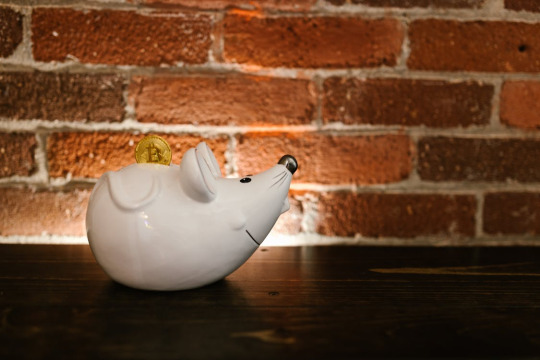
Factors To Consider When Choosing A Forex Broker
Despite the requirements of regulatory bodies, transparency is key when selecting a forex broker. When searching for a reliable and reputable provider, traders should consider factors such as fees, customer service, trading platforms, execution speeds and payment methods offered by the broker. In addition to these considerations, it's also important to assess their level of transparency before making a decision.
Transparency allows brokers to demonstrate that they are committed to best practices and ethical standards in providing services to customers. The information provided should be clear and easy to read so that clients can make informed decisions about their investments. Additionally, the terms and conditions should be easily accessible on the broker’s website or via email if requested. A transparent broker will clearly outline all risks associated with trading currencies on its platform as well as revealing any potential conflicts of interest between themselves and their clients. This enables traders to understand what actions may affect them financially before investing with a particular broker.
For example, some brokers may offer incentives or bonuses for opening an account but fail to disclose additional costs or restrictions related to those offers upfront. Transparency helps protect investors from being taken advantage of by ensuring that they have enough knowledge and understanding of how certain products work prior to investing any money. By taking into account all aspects mentioned above when choosing a forex broker, you can ensure that your transactions are safe and secure while avoiding costly mistakes due to lack of transparency.
How Transparency Can Improve Your Trading Experience
Transparency is essential for traders when selecting a forex broker. Knowing that the broker has nothing to hide and can provide helpful information about their services, fees, trading conditions, and more will help traders make informed decisions. In turn, this transparency can improve your trading experience in several ways.
The first way transparency helps is by creating trust between you and your broker. When brokers are open with their practices, it shows they understand your needs as an investor or trader. This mutual understanding allows you to feel confident that your funds are being managed correctly and ethically. Transparency also increases communication between both parties which strengthens relationships over time.
Benefits
Reasons
Examples
Trust Building
Openness & Communication
Clear Fee Structures & Live Support
Peace of Mind
Security & Reliability
Segregated Accounts & Regulatory Compliance
Informed Decisions
Accessible Information
Market Analysis Tools & Educational Resources
Lastly, having access to reliable information from transparent brokers gives you the confidence needed to make sound investments. Having up-to-date market analysis tools at your disposal makes researching potential trades easier and quicker than ever before. Additionally, educational resources such as webinars and tutorials provided by some brokers allow novice traders to learn how best to manage risk while still realizing profits. With knowledge comes power; thus giving traders the ability to take ownership of their portfolios with greater success rates overall.
By utilizing transparency within the forex industry, investors get peace of mind knowing they have chosen a reliable broker who values education and ethical business practices above all else. As a result of these improved standards across the board, traders gain access to better services and higher quality support systems leading them closer towards achieving financial success in their endeavors.
Available Tools For Checking The Transparency Of Forex Brokers
Having discussed the importance of transparency in forex brokers, it is also essential to understand how one can verify a broker's reputation. There are some tools available that help traders determine if their chosen broker is trustworthy and transparent.
These include:
Knowing these resources allows you to make an informed decision when selecting a forex broker. It is essential to do your due diligence and be sure you have all the information needed before investing with any particular broker. This way, you can ensure that your trading experience will be safe, secure and profitable.
The Role Of Technology In Enhancing Transparency In Forex Broking
Technology is playing an increasingly important role in Forex trading, particularly when it comes to improving transparency. By taking advantage of modern technologies such as data analytics and automation, brokers can ensure that their clients are always informed on the current market conditions and what they need to know before making any investment decisions.
The following table highlights some of the ways technology can improve transparency within a broker’s services:
Feature
Benefit
How Technology Helps
Price Transparency
Allows investors to make more informed decisions about trades
Automated market analysis tools allow for real-time monitoring of currency values and transactions, allowing investors to make better-informed decisions on when to enter or exit positions at optimal times
Market Accessibility
Offers easy access to global markets from anywhere with internet connection
Online brokerage platforms now provide users with up-to-date information on international exchange rates, news alerts, automated order management systems, and more all accessible through one secure online portal. This allows traders to stay connected with the financial world wherever they may be.
Regulatory Oversight
Prevents unethical practices by monitoring trader activity
Trading platforms are equipped with integrated compliance mechanisms which monitor activities and flag suspicious behavior like insider trading or money laundering attempts. This helps protect both investors and brokers alike while also promoting trustworthiness in the marketplace.
In short, technology has revolutionized how we trade in foreign currencies today. It's not only allowed us unprecedented access into different markets around the globe but has also been instrumental in creating greater levels of transparency for everyone involved. With these technological advancements available today, Forex trading is becoming safer than ever before – providing peace of mind for both experienced professionals and those just starting out in this exciting field alike.
The Future Of Transparency In Forex Brokers
The future of transparency in forex brokers looks bright. With the ever-increasing number of traders and investors turning to online platforms for their trading needs, transparency is becoming an increasingly important factor when choosing a broker. As such, more and more brokers are beginning to introduce measures that ensure full disclosure and visibility into their operations, including offering clients access to real-time data feeds, audit reports and regulatory updates. In addition, many are also investing heavily in technologies such as blockchain which can help create greater trust between traders and brokers by providing an immutable ledger of all transactions.
Furthermore, global regulations on financial markets are constantly evolving with the aim of protecting both retail traders and professional investors alike from unfair or misleading practices. This has resulted in better oversight over brokerage firms by regulators who now have stricter requirements regarding reporting standards, market surveillance tools, capital adequacy ratios and other measures aimed at increasing transparency in the trading process.
In this environment of increased scrutiny, it’s clear that forex brokers must continue to demonstrate compliance with relevant rules and regulations if they want to remain competitive within the industry. By doing so they will not only build confidence among existing customers but also attract new ones who value high levels of openness when making investment decisions.
Frequently Asked Questions
How Do I Know If A Forex Broker Is Transparent?
When it comes to trading in the forex market, transparency is key. How do you know if a broker is transparent? To ensure that the broker you're dealing with is reliable and trustworthy, there are several things to look out for:
It's also important to understand how brokers get paid – some may charge commission fees based on the volume of trades, while others may be incentivized through bonuses from underlying asset providers. It's important to research thoroughly before committing to any particular broker so that you can be certain that all aspects of your trading activities are open, honest and transparent.
By understanding what makes up an ethical and reputable broker, traders can be sure that their investments will be handled responsibly and professionally regardless of market volatility. Doing your due diligence upfront sets the stage for successful long term investing in the foreign exchange markets.
Are All Forex Brokers Required To Be Transparent?
The current H2 question is: are all forex brokers required to be transparent? Transparency in the Forex market is an important factor when it comes to investors’ protection. As such, this question of whether or not transparency is a requirement for all forex brokers needs to be addressed.
First and foremost, it must be made clear that there are no laws or regulations requiring all forex brokers to provide complete transparency. However, many financial regulatory authorities have set out standards related to disclosure requirements which do require certain information about brokerage operations become available for customers. Details like fees charged on trades, account balances and orders executed need to reported accurately by these brokerages. These steps can help ensure basic levels of transparency with regards to their trading activities and practices.
In addition to this, some countries impose restrictions on how much leverage a trader can use while trading currencies through a regulated Forex broker platform – another way they try to protect traders from potential risks associated with excessive leveraging. All these rules work together towards achieving better investor protection as well as increased levels of trustworthiness among Forex brokers overall.
At the end of the day, although there may not be any hard-and-fast rules dictating that all forex brokers should offer full transparency in every aspect of their operations, most reputable ones would go above and beyond what's minimally required for compliance purposes so as to maintain customer loyalty. Ultimately, it pays off for them in the long run if they prioritize customer satisfaction over anything else - something we'd all want from our own chosen providers!
What Type Of Customer Service Should I Expect From A Transparent Forex Broker?
When looking for a forex broker, it's important to consider what type of customer service you can expect. A transparent broker is one that has all the information available and disclosed in an open manner. This means they should be able to answer any questions you have or provide clarification on their terms and services quickly.
A good level of customer service from a transparent forex broker includes providing timely answers to queries, being proactive with updates, offering educational materials such as tutorials and webinars, and having an understanding of how different economies work. They should also be willing to help customers understand any technical aspects about trading currencies. Additionally, if there are ever any issues that arise during transactions, then the broker should be prepared to address them promptly without hesitation.
Overall, when dealing with a transparent forex broker, expect quality communication throughout your experience with them. You should feel comfortable knowing they will always keep you informed and up-to-date on all matters related to your investments so you can make sound decisions going forward. Ultimately this transparency helps build trust between the client and the brokerage firm which is essential for successful trades over time.
What Is The Best Way To Check The Transparency Of A Forex Broker?
When it comes to investing in the Forex market, transparency is essential. Checking a broker's level of transparency is one of the most important steps for traders looking to make informed decisions when trading currencies. But what is the best way to check a forex broker's transparency?
One of the first things that experienced traders should look at are reviews from other customers. Reading through customer feedback can provide valuable insights into how well brokers manage their clients and what kind of services they offer. It’s also a good idea to take note of any complaints or negative comments about a particular broker as this may indicate issues with trustworthiness or lack of transparency. Additionally, you should research regulatory bodies and find out if the broker is registered with them. This will give you an indication on whether the company follows industry standards and regulations when conducting business activities.
Finally, another great way to check a forex broker's transparency is to use online tools such as rating websites and comparison sites. These types of resources can provide traders with detailed information about different brokers, including data about spreads, fees, commissions, leverage ratios and more. By doing some extra digging around online before settling on a specific broker, investors can be sure that they are making an informed decision based on accurate data rather than relying solely on word-of-mouth recommendations.
In short, by taking advantage of both traditional methods like customer feedback along with modern tools like online ratings and comparison sites, investors can ensure they're choosing trustworthy forex brokers who prioritize transparency in all aspects of their practices.
How Can I Make Sure That I Am Dealing With A Transparent Forex Broker?
When it comes to dealing with a Forex broker, transparency is of utmost importance. But how can you make sure that the broker you are considering is truly transparent? Here we'll look at some steps you can take to ensure your Forex trading experience is as safe and secure as possible.
The first thing to do when seeking out a reliable broker is to check their background. Look for reviews from existing clients and investigate any regulatory bodies they may be affiliated with. It's also worth researching the company itself; if it has been around for several years, then that indicates a level of trustworthiness. Finally, don't forget to read through any terms and conditions carefully before signing up - this will help avoid any potential surprises down the line.
Another way to ensure transparency in an online brokerage account is by making use of its features and tools. Most brokers offer detailed reports on transactions and investment performance so that you can track your progress over time. Additionally, many platforms provide educational resources such as webinars or tutorials which allow you to learn about trading strategies without putting yourself at risk financially. Using these tools regularly can give you greater insight into the market movements and trends so that you know when it's best to enter or exit trades.
It's important to remember that while there are measures you can take to verify a broker's reliability, ultimately the decision lies with you. Take the time to evaluate all aspects of a prospective broker before investing money in them – this way, you’ll have peace of mind knowing that your hard-earned cash is being handled responsibly and ethically.
Conclusion

The importance of transparency in forex brokers cannot be overstated. It is essential to have confidence and trust with the broker that you are using, as they will be handling your funds. Transparency enables traders to make better informed decisions when trading and helps ensure that any potential issues can be dealt with quickly and efficiently.
To make sure you are dealing with a transparent forex broker, it’s important to check out their customer service before committing to them. Look for reviews from other customers and see how long it takes for problems to get resolved. Additionally, look at what type of information is available on their website – such as fees and commissions – so that you can decide whether or not this broker is suitable for your needs.
Transparency should be one of the top criteria when selecting a forex broker. The more transparent a broker is about its operations, policies and procedures, the greater peace of mind you can have knowing that your funds are secure and well-managed. So don't forget to do your due diligence - research thoroughly before deciding which Forex Broker to use!
0 notes
Text
A Beginner's Guide To Forex Brokers: What You Need To Know
Are you looking to start trading on the foreign exchange market? If so, then you've come to the right place! This article will provide a beginner's guide to Forex brokers, and explain what you need to know.
The foreign exchange (Forex) market is one of the world’s largest financial markets, with an average daily turnover of more than $5 trillion. With such a vast amount of money involved, it can be daunting for first-time traders. Thankfully, there are Forex brokers who can help make this process easier and less intimidating.
Forex brokers act as middlemen between buyers and sellers in currency transactions. They provide access to the Forex market and offer services such as execution, clearing and settlement of trades. In addition, they also offer advice and guidance on which currencies may be best suited for your particular needs. Before getting started, let's look at what else you need to know about these brokers.

Definition Of Forex Trading
Forex trading is the buying and selling of currencies through an online broker. It’s a great way to make money, as you can take advantage of exchange rate fluctuations between two different countries' currencies. But before diving into forex trading, it’s important to understand how it works and what type of brokers are available.
A forex broker is like any other financial institution that provides access to the global currency markets for its clients. Brokers provide traders with access to their own platforms which allow them to buy and sell foreign currencies quickly and easily. By using leverage, these brokers enable investors to control more money than they actually have in their accounts. This means that even small moves in the market can create big profits or losses for those who trade with a high degree of leverage.
In order to get started with forex trading, one must first find an appropriate broker that meets their needs. There are many factors that should be taken into consideration when choosing a broker such as fees, minimum deposit requirements, customer service support, research tools offered and so on. It’s also important to choose a reputable provider who follows all necessary regulatory guidelines set out by governmental agencies in order to ensure your funds remain safe throughout the process.
Types Of Forex Brokers
Now that traders know the definition of forex trading, it's time to cover the types of forex brokers. Forex brokers are firms or individuals who offer access to a platform where they can buy and sell currencies. Depending on their size and structure, there are three main categories: market makers, electronic communication networks (ECN), and straight through processing (STP) brokers.
Market makers operate similarly to banks in that they quote both buying and selling prices for assets. They add a spread which is essentially the difference between the two quotes; this is how they make money from trades since each transaction has its own price tag. Market makers have an advantage over ECNs because they don’t require high capital investments as ECNs do and can provide liquidity to markets with low volume levels.
ECNs are more sophisticated than market makers, as they use advanced technology such as dark pools to match buyers and sellers without revealing order information until after the trade has been executed. This system ensures faster execution times with fewer fees attached compared to traditional methods like using a broker-dealer network or manual orders. However, ECNs require higher capital investments due to their complexity and cost of running them.
Finally, STP brokers take customer orders directly from clients but send those orders out into the open market rather than executing them internally like other types of brokerage firms would do. This allows for quicker executions at better rates but also involves increased risks since these transactions happen outside of regulated exchanges or clearing houses. STP brokers need less capital investment than ECNs but still benefit from competitive spreads, making them attractive options for individual investors looking for cheap access to global markets.
Regulatory Requirements
When it comes to forex trading, there are a few regulatory requirements you need to be aware of. Depending on your location and the country in which you are doing business with a broker, different laws may apply. Generally speaking, brokers have to adhere to regulations set forth by the local government and must be licensed or registered accordingly. It’s important for traders to research any potential brokerage before investing their money as some may not be properly regulated or offer services that don't meet industry standards.
It's also essential that a trader is familiar with the rules and regulations governing the securities market they will be engaging in as well as those applicable to their specific broker and jurisdiction. Brokers should provide detailed information regarding how they handle client funds, including segregation of accounts and other measures taken to protect clients' financial interests. Additionally, all trades must go through an authorized intermediary such as a bank or custodian prior to being executed on behalf of the investor.
Investors should always read up on risk management strategies and make sure they understand them before entering into any transactions with a broker. A good way to do this is by using practice accounts offered by many reputable brokers in order to get comfortable with various types of investments without having to risk real money right away. Understanding these guidelines can help ensure that investors remain safe when dealing with forex brokers.

Leverage & Margin Requirement
When it comes to Forex brokers, leverage and margin requirements are two key concepts you need to understand. Leverage is a loan that the broker provides so you can increase your buying power in a trade. It allows traders to open larger positions with less of their own money. Margin requirement is the amount of funds needed as collateral before opening a position in a particular currency pair.
Here's a quick list of what you should know about leveraging & margin requirement:
It's important to note that although leveraged positions allow traders to amplify potential profits, they also carry much higher risks than normal trading positions due to their reliance on borrowed capital from the broker. Make sure you evaluate these factors carefully before branching out into more risky strategies such as using high leverage or margins beyond your comfort level.
Fees & Commissions
Moving on from leverage and margin requirements, we now need to discuss fees & commissions. When trading currencies, you'll likely be charged a fee or commission for each trade made. The amount of the fee or commission can vary depending on the broker you use, as well as the type of currency pair being traded. In order to make an informed decision about which Forex broker is best for you, it's important to understand what these fees mean and how they affect your trades.
Fee/Commission Type
Description
Spread Fees
These are the most common types of fees charged by brokers and involve the difference between buying and selling prices for a given currency pair. For example, if EUR/USD has a bid price of 1.2050 and an ask price of 1.2055 then there would be a spread fee of 5 pips (1 pip = 0.0001).
Commission Fees
Some brokers may charge extra fees in addition to spread fees called “commission” fees that are calculated based on the size of your position (in lots) and sometimes even the volume traded over time using their platform (volume-based commissions). These additional charges can increase overall costs significantly so it’s important to check all relevant terms before opening an account with any particular broker.
Overnight Financing Fees
Also known as swap rates, overnight financing fees refer to interest payments made when holding positions overnight due to market rollover at the end of trading sessions (typically Sunday). This cost will depend on both your broker’s policy as well as conditions in global financial markets but should generally be taken into consideration during long-term trading strategies.
It is also important to remember that not all brokers offer exactly same features when it comes to pricing; some might have lower spreads than others while others may specialize in certain pairs like exotic ones where higher spreads could apply. Make sure you do plenty research beforehand so you know exactly what kind of costs you’ll incur when trading through whichever broker you choose!
Platforms & Tools
When it comes to trading forex, having the right platform and tools is essential. The best platforms provide access to a variety of trading instruments, real-time market data, historical charting capabilities, advanced order types, and more. To determine which platform fits your needs, you should consider the amount of time you plan on spending in the markets as well as whether or not you need automated features like algorithmic trading strategies.
One other important thing to look for when choosing a forex broker is the availability of free educational resources such as webinars and video tutorials that can help traders get up to speed quickly with their chosen platform. Most brokers will offer some sort of tutorial or demo account so that new users can practice before risking any real money. This can be invaluable for beginners who are just getting started in the world of forex trading.
In addition to offering robust platforms and tools, many brokers also have customer service representatives available 24/7 to answer questions and troubleshoot issues. Before signing up with a broker, make sure they have knowledgeable staff members who can assist you if needed. With this information handy, finding reliable forex brokers should be much easier and less intimidating for beginner traders.
Account Options
When shopping for a Forex broker, one of the most important things to consider is account options. You'll want to ensure that you have access to all the features and tools necessary to take your trading strategy to the next level. There are several different types of accounts available:
A demo account allows traders to practice trading without risking any real money. This type of account can be helpful for new traders who need time to build up their confidence before investing real funds. It's also useful for experienced traders looking to test out a new strategy or learn about a new market. Many brokers offer unlimited demo accounts with no expiration date, so you can use them indefinitely if needed.
Standard trading accounts are what most people think of when they talk about Forex trading. In this type of account, you deposit funds into your own personal margin account and have full control over it. With this kind of flexibility comes risk, but these accounts provide some great opportunities for making profits as well. Most standard accounts require at least $500 minimum initial deposits in order to start trading.
Managed accounts can be beneficial if you don't have the time or expertise required for managing your own portfolio. These managed accounts allow professional managers to make decisions on behalf of investors while still giving them full oversight and control over their investments. Managed accounts typically require larger initial investments than standard ones; however, they may come with lower fees and other benefits such as diversification and tax advantages.
No matter which type of account option you choose, always do your research first to find an established Forex broker with competitive fees and services tailored specifically for your needs. Make sure you understand all policies related to deposits, withdrawals, leverage amounts, stop-loss orders, etc., before committing yourself financially with any broker – it could save you from costly mistakes down the line!
Customer Support
When looking for a forex broker, customer support is of utmost importance. You need to know that your broker is there to help you with any questions or issues you might have. This section will explore the different types of customer support available and what criteria you should look for when choosing one.
Type of Support
Features
Pros/Cons
Live Chat
24/7 chat service on website or app; can ask basic queries quickly and get quick answers in real-time
+ Quick response; - Limited scope; may not be able to answer complex queries
Phone Support
Direct contact by phone through an international toll number; allows customers to explain their problems more thoroughly than live chat but might take longer to respond
+ In-depth explanation possible; - Longer wait times before getting answers
Email Support
Customers send emails detailing their problem which are then answered within a certain time frame (usually 12-24 hours)
+ Wide range of topics covered; - Slow response time compared to other options
From these three choices, it's important to consider your needs as well as the features offered by each type of customer support. Some brokers offer all three, while others only offer one or two. It’s best if you can find out from reviews or testimonials about the quality and speed of responses so you know exactly what kind of service to expect. When signing up for a new account, make sure the level of customer support provided is up to standard – otherwise, don’t hesitate to switch providers! All in all, having access to reliable customer support is essential when trading currencies online.

Education & Resources
When it comes to forex trading, having a good education and access to resources is key. Having the right information can mean the difference between success and failure in this volatile market. Brokers provide educational materials and resources that can help traders become more informed about the different aspects of forex trading. These include tutorials, webinars, online courses, e-books, trade journals, and other helpful tools.
Many brokers also offer their own proprietary research reports or analysis from third parties such as analysts or financial advisors. This type of content helps traders stay up-to-date on global markets and make better decisions when trading currencies.
It’s important for new traders to take advantage of all the available educational material so they understand how the currency markets work before jumping into trades. Additionally, experienced traders should use these resources to stay current with the latest news and trends in order to improve their strategies over time.
How To Choose A Broker
When selecting a Forex broker, it's important to consider several key factors. First and foremost, you want to ensure that the broker is reputable, reliable, and trustworthy. It’s also important to compare fees and commissions charged by different brokers as these can vary significantly. Additionally, look for brokers who offer trading platforms with features that suit your needs.
It’s also essential to review their customer service policies before signing up with any broker. You should be able to get in touch with them quickly if there are any problems or questions regarding your account or trades. Furthermore, make sure they provide support in multiple languages so you have no difficulty communicating with them regardless of where you're located geographically.
Finally, research the regulatory environment of the countries in which the broker operates. Ensure they are properly regulated by official financial watchdogs such as CySEC (Cyprus Securities & Exchange Commission) or ASIC (Australian Securities & Investment Commission). By taking all these points into consideration prior to making a decision about which broker to use, traders can rest assured that their funds will remain secure and protected at all times.
Frequently Asked Questions
What Kind Of Trading Strategies Should I Consider When Trading Forex?
When trading forex, it's important to understand the different strategies available. There are various methods of analysis and approaches that traders can use when making decisions about their trades. Before deciding on a strategy, one should become familiar with all the options available and get comfortable using them.
One popular approach for FX trading is technical analysis. This involves studying past price action to make predictions about future prices. Technical analysts also consider things like support/resistance levels, trend lines, chart patterns and indicators such as moving averages and MACD (Moving Average Convergence Divergence). Other common strategies include fundamental analysis, which looks at economic factors like inflation rates or political events; sentiment analysis, which assesses overall market sentiment towards an asset; and carry trade investing, where traders take advantage of interest rate differences between two currencies by borrowing in one currency and lending in another.
No matter what method you choose to employ while trading forex, it’s important to have a well-thought out plan before taking any positions. Doing your research on a particular currency pair or country's economic situation is essential for success. Additionally, having realistic expectations will help ensure that you don't overextend yourself financially or emotionally during any given trade. Taking the time to develop a comprehensive understanding of these strategies can give traders an edge over other market participants who may not be as informed or experienced.
How Can I Minimize Risks When Trading Forex?
When trading forex, risk minimization is an important factor to consider. To ensure that your trades are successful and you can make the most of any potential market opportunities, there are a few strategies you should implement.
The first strategy is to set stop-loss limits on each trade. This will help protect against sudden losses due to changing market conditions or currency fluctuations. You may also want to use leverage when trading in order to potentially increase profits but it's important to be aware of the risks associated with this practice as well as understand how much leverage you should use for each type of trade.
Another way to minimize risk while trading forex is through diversification. By spreading out your investments across different currencies, markets, and instruments, you can reduce the overall impact of any one single loss by balancing it out with other gains elsewhere. Additionally, research into certain economic indicators can give traders insights into which markets might offer better returns than others so they know where best to put their money.
By following these steps and implementing effective risk management practices, traders can improve their chances at making profitable trades while reducing their exposure to financial losses. Taking advantage of all available resources such as technical analysis tools and automated investment software can also aid in achieving success without taking large risks.
What Is The Best Way To Evaluate A Forex Broker?
Evaluating a forex broker is essential in minimizing risks when trading. It helps to ensure that you're getting the best possible service from the company, and that your investments are secure. Here's how to go about evaluating a forex broker:
It's important to do this research thoroughly before committing to any particular broker, since it can make all the difference in terms of success when trading currency markets. By taking the time to evaluate a forex broker carefully, you'll be able to make an informed decision on who will provide you with the best service and opportunities available in the market today.
What Type Of Customer Service Can I Expect From A Forex Broker?
When evaluating a forex broker, customer service is an important factor to consider. Many brokers offer different levels of support depending on the type of account you have or how active you are as a trader. Here’s what you need to know about customer service from a forex broker:
Overall, understanding a forex broker’s level of customer service can make all the difference when it comes to choosing one that meets your needs best. Having access to knowledgeable staff who can assist with navigating the market and addressing any concerns is essential in order to ensure successful trades over time. Doing research ahead of time allows traders to select the most suitable broker based on their individual requirements and preferences when it comes to customer service availability and quality.
Can I Use A Forex Robot Or Automated System To Trade On My Behalf?
Forex brokers offer an opportunity for traders to gain access to the global market, but it can be difficult to know what services are available. One such service is automated trading systems, which allow users to execute trades automatically on their behalf. In this article, we'll discuss whether or not it's possible to use a forex robot or automated system to trade when working with a broker.
Many brokers provide software that automates certain aspects of the trading process. This type of technology usually comes in the form of a Forex Expert Advisor (EA), which will make decisions based on criteria specified by you as the trader. It’s important to note however, that these EAs aren’t infallible and can often cause more harm than good if used without proper guidance and training.
It's also important to understand that some brokers may have restrictions on using automated trading systems due to potential conflicts of interest between them and the customer. If this is the case, then they likely won't allow you to use any third-party robots or automation tools at all - even if they're developed by your own team. That said, there are still plenty of reputable brokers out there who do support automated trading solutions so you should research thoroughly before making any decisions about where you want to open an account.
Ultimately, deciding whether or not you want to use a forex robot or automated system depends on how comfortable you feel with taking responsibility for your own trades and results. Automation can take away some of the tediousness associated with manual trading methods, but it does come with additional risks too - so make sure you weigh up both sides carefully before proceeding.
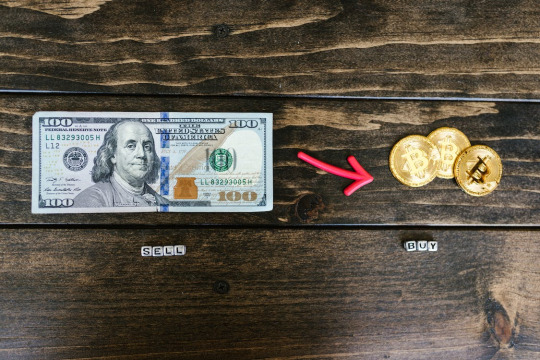
Conclusion
Now that you know the basics of Forex brokers, it's time to make a decision about which one is right for you. First and foremost, think about what kind of trading strategies you want to use when selecting your broker. Make sure they offer the products or services necessary to execute those trades.
Next, evaluate their customer service offering before committing; find out how quickly they respond to inquiries and complaints, as well as whether they provide any additional resources such as webinars or online tutorials. Finally, consider if you need an automated system or robot in order to trade on your behalf – some brokers may be better equipped than others to facilitate this type of activity.
Considering all these factors, you can feel confident in finding a reliable and trustworthy Forex broker who will meet your needs. Good luck!
0 notes
Text
The Pros And Cons Of Using Regulated Forex Brokers
Trading foreign currencies on the Forex market is becoming increasingly popular among individual investors. It has grown to become one of the world’s largest financial markets, giving traders a wide range of options in terms of currency pairs and brokers. But with so many choices available, it can be difficult for investors to determine which type of broker best suits their needs - regulated or unregulated? In this article, we will explore the pros and cons of using regulated forex brokers when trading on the Forex market.
For those unfamiliar with the concept, regulated forex brokers are firms that have received authorization from governmental regulatory bodies such as the U.S. Commodity Futures Trading Commission (CFTC) or National Futures Association (NFA). These organizations ensure that these brokers comply with certain standards meant to protect investor interests. This means that traders who use these types of brokers generally enjoy higher levels of security compared to other forms of online investing platforms.
But while there are advantages to using regulated forex brokers, there may also be downsides depending on an individual trader's preferences. We'll look at both sides in detail throughout this article to help you decide whether a regulated forex broker is right for you.

Definition Of Forex Trading
Forex trading is a form of investment in foreign currency markets. It involves exchanging one country's currency for another, and speculating on the future values of different currencies against each other. The goal is to profit from fluctuations in exchange rates over time. Forex traders use their knowledge and experience to buy low-value currencies and sell them when they appreciate in value.
The forex market can be volatile and risky, as it is subject to political, economic, and financial factors that affect its performance. To reduce risk, investors should research potential investments carefully before investing any funds. They should also consider using regulated forex brokers who have been approved by regulatory authorities, such as the Financial Conduct Authority (FCA) in the United Kingdom or the Commodity Futures Trading Commission (CFTC) in the United States.
Regulated forex brokers provide access to liquid markets with competitive spreads and no restrictions on maximum leverage ratios or order size limits. This makes them attractive to novice traders looking for an easy way into large positions without having to worry about capital requirements or margin calls. On the downside, these brokers may charge higher commissions than those offered by unregulated firms due to additional compliance costs associated with being registered with regulators.
What Is A Regulated Broker?
Moving on from the definition of Forex trading, we will now delve into what a regulated broker is. A regulated broker is one that holds an official license from a governing body or authority and must abide by certain rules in order to maintain it. This provides traders with more security as they can be sure their funds are protected and all transactions are conducted in line with legal requirements.
The main benefit of using a regulated forex broker is that you have peace of mind knowing your money is safe as these brokers adhere to strict regulations set by their national regulatory bodies. Also, because they have been licensed, these brokers usually offer better customer service than those without proper regulation. Furthermore, they often provide services such as stop loss orders which help protect investors against large losses due to market fluctuations or other unforeseen events.
On the other hand, some drawbacks may come along with using a regulated broker. The most common complaint about them is that fees for trading can sometimes be high compared to unregulated brokers who tend to offer lower rates for trades. Additionally, since there are restrictions imposed on how much leverage can be offered by a regulated broker, this might limit traders’ potential profits if they cannot take advantage of higher levels of leverage available through non-regulated brokers.
Overall then, while there are advantages and disadvantages to working with a regulated forex broker, the pros generally outweigh the cons when taking into account investor safety and protection measures provided by these firms. Therefore, traders should carefully consider whether or not utilizing a regulated forex broker would best suit their needs before making any final decisions regarding where to place their investments.
Advantages Of Using Regulated Forex Brokers
The primary advantage of using regulated forex brokers is that their activities are monitored. This means they must adhere to certain standards and regulations, which protect both the broker and investor from any unethical behavior or fraud. As such, investors can be sure that their funds will remain secure with a reputable and reliable broker. Regulated brokers also provide transparency in terms of pricing, execution speed and other services provided.
Another benefit is the access to advanced trading technology regulated forex brokers offer. These brokers offer platforms with sophisticated tools for trading currencies, allowing investors to perform complex trades quickly and efficiently. They also typically provide educational resources, customer service support, security measures across all accounts and other features designed to enhance traders’ experience.

Overall, regulated forex brokers provide peace of mind for the investor; knowing that the market maker has been reviewed by an oversight body provides confidence when investing capital into currency markets. With these protections in place, investors have much greater assurance that their money is safe and sound while engaging in profitable trades
Disadvantages Of Using Regulated Forex Brokers
Despite the many advantages of using regulated forex brokers, there are also several potential drawbacks to consider. One downside is that they often require a minimum deposit amount in order for investors to open an account. This can be an obstacle for those with limited funds who want to get involved in trading. Furthermore, due to their strict regulatory oversight and compliance requirements, these brokers typically charge higher fees than unregulated ones.
Another disadvantage of working with a regulated broker is that traders may find it difficult or impossible to access certain instruments or markets depending on where they live. In some countries, certain products such as binary options are prohibited completely; this could severely limit your ability to diversify your portfolio if you’re restricted from investing in them. Additionally, having too much regulation can lead to slow processing times when executing trades as well as increased paperwork when dealing with deposits and withdrawals.
Overall, while regulated forex brokers provide many benefits such as added protection and peace of mind for investors, there are still some disadvantages which should be taken into consideration before opening an account with one. It's important to weigh the pros and cons carefully so that you make the best decision for your needs.
How To Choose The Right Broker
Choosing the right regulated Forex broker is essential for successful trading. There are a few key factors to consider when selecting the best broker for your needs.
Once you know what specifics you need from a broker, it's time to start researching potential candidates and comparing them against one another until you find the perfect fit for your trading style and budget. Everyone has different reasons for choosing a particular broker; make sure yours meets all your requirements before investing any money into an account with them! With careful research and consideration of these key points, you'll be able to pick out the ideal regulated Forex broker for your needs without worry or hassle.
Safety And Security Considerations
When it comes to trading, security should always be a top priority. Forex brokers who are regulated by reputable organizations provide the highest levels of safety and security when compared to non-regulated forex brokers.
Pros
Cons
Regulated Brokers adhere to strict standards set by their respective regulatory bodies and must maintain certain minimum capital requirements in order for them to remain operational.
Non-regulated brokers may not have the same level of protection or oversight as those that are regulated, leaving investors open to potential fraud or market manipulation.
Regulated forex brokers must also comply with various anti-money laundering regulations which help protect customers from financial scams and identity theft.
Non-regulated brokers do not necessarily have these protections in place, meaning investors could potentially fall victim to money laundering schemes or other forms of illegal activity.
Regulated forex brokers must submit regular reports on their activities, so traders can be sure they’re operating within legal boundaries and keeping client funds safe.
Non-regulated brokers don't need to disclose as much information about themselves as regulated ones, raising suspicion regarding how they're handling customer accounts and funds.
All things considered, choosing a regulated broker over a non-regulated one is usually the safer option if you want assurance your investments will be handled correctly and securely. With this in mind, it's essential to thoroughly research any prospective broker before opening an account with them, considering both their regulation status and their track record of providing excellent customer service and support.
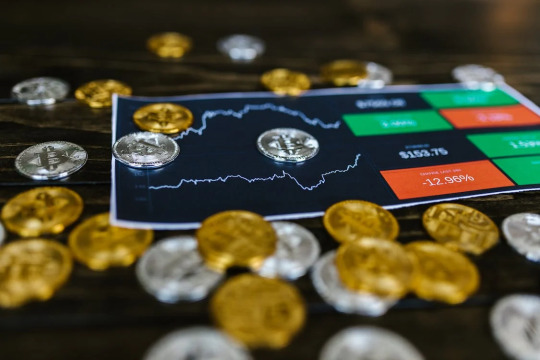
Regulatory Requirements For Forex Trading
The next step in forex trading is to understand the regulations put forth by the regulatory bodies that govern it. Knowing these regulations can help traders determine which brokers they may use, and what level of protection they will receive when investing with them. There are both pros and cons associated with using regulated forex brokers:
On the flip side, there are some drawbacks as well. Regulated brokers typically have higher costs for deposits and withdrawals, along with additional paperwork requirements that must be completed before a trader can open an account. Additionally, many countries impose limits on how much capital or margin a trader can borrow from their broker, meaning that larger positions might not be possible without breaking those rules.
Overall, understanding the different regulations governing forex trading is essential for any investor looking to trade successfully in this market. Regulations provide traders with assurance that their funds are protected while also ensuring fair practices within the industry - two key elements of successful trading. By taking into account all aspects of regulation when selecting a broker, traders can ensure they find one best suited to their individual needs.
Client Protection Measures
When it comes to using a regulated forex broker, there are certain client protection measures that can be taken advantage of. One such measure is the segregation of clients' funds from the broker's own funds. This means that if a broker ever goes bankrupt, clients’ money remains safe and secure. Additionally, most regulated brokers will also offer negative balance protection which prevents clients from losing more than their initial investment in case of market volatility.
Regulated brokers must adhere to strict capital requirements and other financial regulations, such as those set by CySEC or FCA UK. These rules ensure that all customers are treated fairly, ensuring they receive timely payments and accurate statements regarding their accounts. In addition, these regulations require brokers to maintain sufficient liquidity levels so that customers have access to their funds at any time without disruption.
Finally, many regulated brokers go above and beyond when it comes to protecting their customers’ interests by offering additional protections like compensation schemes for losses incurred due to trading errors or frauds committed by employees or third parties on behalf of the broker. By choosing a highly trusted, reliable and well-regulated broker, traders can rest assured knowing that their investments are protected with such safeguards in place.
Benefits Of Working With A Reputable Broker
Working with a reputable broker is beneficial because it ensures that clients are trading in an honest and secure environment. Reputable brokers have to comply with regulations set by regulatory bodies, such as the Financial Conduct Authority (FCA). This means they must adhere to strict rules regarding how they conduct their business, including consumer protection measures and financial stability standards. As a result of this regulation, traders can be sure that their funds will be safe when working with these brokers.
Another benefit of using regulated forex brokers is that most offer excellent customer service. Due to the stringent requirements put on them, any complaints about a broker's services are taken seriously and investigated quickly. Furthermore, regulated brokers usually provide educational resources to help inform customers about market trends, news events, and other important topics related to successful trading activities.
The peace of mind that comes from knowing one’s money is protected makes working with a reputable broker worthwhile for many traders. The added security provided by regulatory compliance provides assurance that investments are not being misused or stolen while also allowing access to valuable resources like customer support and education materials which can help traders improve their knowledge base and become more profitable in their investment endeavors.
Impact On Your Trading Performance
Having a regulated broker can certainly provide many advantages to traders. But it is also important to consider the potential downsides of using one. Working with a regulated forex broker comes with its own set of pros and cons that every trader should be aware of before committing to any particular firm.
One major benefit of working with regulated brokers is their commitment to uphold industry standards and regulations. This offers some degree of protection for traders in terms of security, as they are being monitored by an external authority such as a government body or financial regulator. If something goes wrong, these organizations will investigate on behalf of the customer and may even take action against the broker if necessary.
On the other hand, some drawbacks are associated with working with regulated brokers too. One common complaint among experienced traders is that fees tend to be higher at these firms than at non-regulated ones. In addition, trading conditions like spreads and leverage may not always be competitive compared to what’s available elsewhere. Finally, since most regulatory authorities have strict rules about marketing activities, promotions from regulated brokers tend to be more limited than those offered by their unregulated counterparts.
Deciding whether or not working with a regulated broker is right for you will largely depend on your individual needs and preferences as a trader. While having access to extra protections provided by regulators can undoubtedly be beneficial in some instances, make sure you weigh up all aspects carefully before making your decision so that you can ensure optimal trading performance going forward.
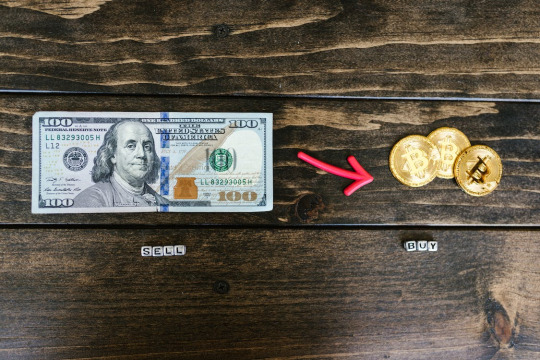
Frequently Asked Questions
Are There Any Fees Involved When Using A Regulated Forex Broker?
When it comes to using a regulated forex broker, one of the most important things to consider is any fees that may be involved. Most brokers will charge trading fees as well as other services like account maintenance or order processing. It's important to do your research and find out what kind of fee structure each broker offers before you make a decision on which one to use.
The amount of fees charged can vary greatly between different brokers. Some brokers might offer commission-free trades or lower spreads, but there could also be minimum balance requirements or hidden charges not shown upfront in their pricing plans. Additionally, some brokers have specific costs for certain types of orders such as limit orders or stop loss orders. All these factors should be taken into consideration when deciding whether to go with a particular broker or not.
It’s important to note that while many regulated forex brokers are reliable and trustworthy, they still need to make money in order to stay in business. This means that traders must take the time to understand all the associated expenses so they don't get caught off guard by unexpected extra costs down the line. By thoroughly researching a broker’s fee schedule beforehand, traders can ensure they select an appropriate provider who fits their budget and needs without overspending or being surprised later on by unforeseen charges.
How Long Does The Verification Process Take When Opening An Account With A Regulated Forex Broker?
Opening an account with a regulated Forex broker can be a great way to get into the trading world. But it's important to know how long this process takes and what kind of fees are involved. Let's take a look at the verification process when opening an account with a regulated forex broker:
First, you'll need to provide your personal information like name, address, phone number, etc., for identity verification purposes. This is required by law in order to ensure that only legitimate traders are participating on the market. It usually doesn't take more than 24 hours for most brokers to verify all documents received from clients.
In addition to providing identification details, some brokers may also require other items such as proof of income or bank statements in order to further assess risk levels associated with each trader’s individual financial situation. The amount of time necessary for full verification depends on how quickly all requested materials are provided and verified by the respective authorities.
The good news is that there aren't typically any fees associated with opening an account and verifying your identity with a regulated Forex broker. Here are three main advantages of using one: -You have access to greater protection against fraud since they must adhere to strict regulations set forth by governing bodies -It allows you better control over funds since deposits and withdrawals are tracked internally and externally -It provides assurance that all transactions made through their platform will be safe and secure due to regulatory compliance standards.
By understanding these elements before beginning the registration process, you can make sure that your journey into becoming an online Forex trader goes smoothly - without having unexpected delays along the way!
What Kind Of Customer Support Is Available From Regulated Forex Brokers?
When it comes to trading forex, customer support is a major factor. Regulated forex brokers provide access to the international market while still adhering to strict regulations. It's important to understand what kind of customer support they offer so you can make an informed decision when choosing your broker.
In general, regulated forex brokers have robust customer service departments that are available 24/7 by email, live chat and phone. They also prioritize security and will answer any questions or concerns about their platforms quickly and professionally. Additionally, many top-tier brokers offer educational resources such as webinars, tutorials and articles for their customers, allowing them to stay up-to-date on the latest news in the industry.
All in all, regulated forex brokers provide reliable customer support which helps traders feel secure and confident in their decisions. Having a knowledgeable team that is always ready to help makes sure your experience runs smoothly from start to finish. With these features combined with excellent trading conditions offered by regulated brokers, it’s no wonder why they are becoming increasingly popular among both experienced traders and beginners alike.
Are There Any Restrictions On The Type Of Currency Traded When Using A Regulated Forex Broker?
When it comes to trading foreign currencies, many people turn to regulated forex brokers. However, before investing with a broker, investors should be aware of any restrictions that may come with the platform. One such restriction is related to the type of currency traded when using a regulated forex broker.
First and foremost, traders should understand their own country's regulations on foreign exchange transactions. Depending on where they are located, some countries might have more stringent rules than others. For example, in certain parts of Europe, specific types of trades are not allowed due to local laws or financial regulations. It is important for traders to research these restrictions before opening an account with a regulated forex broker.
In addition to understanding the legal requirements associated with forex trading in one's home country, potential investors must also take into consideration the types of currency offered by the broker itself. Not all regulated brokers offer every single form of currency available worldwide; therefore it is imperative that customers know which ones are supported so as not to get caught up in unforeseen limitations while trading currencies online.
It is essential for individuals looking at signing up with a regulated forex broker to do their homework first and make sure they are familiar with both national and international standards regarding foreign exchange transactions. This knowledge can help ensure that users enjoy efficient and profitable trading experiences without running afoul of any rules or regulations.
Are There Any Risks Associated With Using A Regulated Forex Broker?
When it comes to making investments in the foreign exchange market, many people choose to use regulated forex brokers. But are there any risks associated with this? The answer is yes - like all investments, using a regulated forex broker can come with certain risks and potential losses.
First of all, there's always the possibility that the broker may not be as reliable as they claim to be. Although most regulated forex brokers abide by strict regulations from regulatory bodies such as the Financial Conduct Authority (FCA), some may still find ways around these rules or act fraudulently. It's important for investors to do their research and make sure that their chosen broker is properly registered and has a good reputation before committing funds.
The second risk involves how much leverage an investor chooses when working with a regulated forex broker. Many brokers offer high levels of leverage which can lead to large profits but also substantial losses if trades don't go according to plan. Leverage should only be used carefully; investors who are new to trading should start out with lower amounts until they gain more experience and confidence in their abilities.
It's clear that while using a regulated forex broker has its advantages, investors need to weigh up the risks involved before taking any action. Doing thorough research into the company along with setting sensible limits on leverage will help ensure that traders have a safe and successful journey in the foreign exchange market.

Conclusion
In conclusion, using a regulated Forex broker has both pros and cons. On the plus side, there are no fees associated with opening an account and the verification process is usually quite quick. Additionally, you can expect great customer support from these brokers as well as access to different currency pairs for trading purposes.
On the other hand, there may be certain restrictions when it comes to investment choices which could limit your potential profits. Furthermore, regulation does not guarantee that any losses incurred won't exceed deposits so you should always be aware of the risks before investing anything.
Overall, if you are considering using a forex broker, then researching beforehand will help ensure you get one that meets your needs. Ensure you understand all the terms and conditions involved in making trades and know what kind of support they provide. This way, you’ll know that I'm getting into something secure and reliable.
0 notes
Text
Forex Brokers Vs. Banks: Which Is The Better Option For Currency Trading?
Are you looking to trade currencies but not sure which option is best for you? Forex brokers versus banks: Which one should you choose when it comes to currency trading? For some investors, the answer might be obvious. But for others who are new to the game, this can be a daunting decision. In this article, we will compare and contrast forex brokers and banks so that you can make an informed decision about which one is right for your needs.
The world of currency trading has become increasingly complex in recent years with many different options available. Banks have been around longer than forex brokers and offer advantages such as security and stability. On the other hand, forex brokers offer access to more markets, lower transaction costs and greater flexibility. Both have their benefits depending on what type of investor you are - whether novice or experienced trader.
In this article, we’ll explore both sides of the coin; investigating why each may be better suited for specific traders as well as discussing potential drawbacks associated with each option. We'll also discuss how choosing between a bank or a broker depends on individual preferences and goals when investing in foreign exchange (Forex). With all things considered, let's dive into our comparison between these two ways of trading currencies!
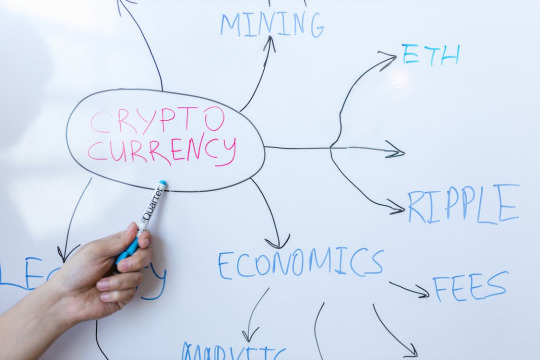
Definition Of Forex
Forex, or foreign exchange, is the world's largest financial market. It involves trading one currency for another in order to make a profit. The value of currencies fluctuates based on global economic and political factors such as supply and demand, inflation rates and interest rates. Traders can use this volatility to their advantage by buying and selling different currencies at particular times.
Traders have two main options when it comes to participating in the forex market: using a bank or a broker. Banks are large financial institutions that offer services such as deposits, loans and investments. They also provide access to the interbank market where traders can buy and sell currencies directly from other banks and investors. Brokers, on the other hand, are licensed entities that facilitate trades between buyers and sellers but do not actually hold any of the funds themselves.
Both brokers and banks have advantages and disadvantages when it comes to forex trading. For example, banks often charge high fees for transactions while brokers typically offer lower spreads (the difference between bid price and ask price). However, banks generally have more resources available for research tools, which may give them an edge over brokers in terms of understanding market trends. Ultimately, each trader will need to decide which option is best suited for their individual needs.
Pros And Cons Of Forex Brokers
Forex brokers are an increasingly popular option for currency trading. They offer a range of advantages which make them attractive to traders, including lower costs and more flexibility than banks. However, it's important to understand the pros and cons before making a decision between forex brokers and banks.
One advantage of using forex brokers is that they usually have much lower fees than banks. This can be especially helpful if you're looking to make frequent trades or want to start out with a small amount of capital. Forex brokers also tend to offer more leverage, allowing you to take larger positions even when your account balance is low. Additionally, most forex brokers provide access to robust platforms with real-time market data and advanced charting tools, giving you additional insight into how the markets are moving.
On the other hand, there are some potential drawbacks associated with forex brokers as well. For instance, not all forex brokers are regulated or licensed in every jurisdiction where they operate – so it’s always important to do your research ahead of time and ensure that any broker you choose has adequate regulation in place. There may also be limits on what features or accounts types certain brokers offer depending on their regulatory status in different countries. Finally, some forex brokers may require higher minimum deposits than banks or impose other restrictions such as trade size limits or margin requirements – so it pays to read through each broker's terms & conditions carefully before committing funds.
Overall, both banks and forex brokers can be viable options for currency trading - but understanding the various benefits and drawbacks of each will help you make an informed choice about which one is best suited for your particular needs.
Pros And Cons Of Banks
Banking institutions have been around for centuries and remain a popular choice for currency trading. But what are the pros and cons of banks?
The main benefit of using a bank is that it’s an established, trusted entity. Banks offer insured accounts to customers which means your money is safe even if the bank itself fails or declares bankruptcy. Additionally, banking services are convenient with most having online access as well as physical locations where you can go in-person.
On the flip side, some drawbacks exist when dealing with banks such as high fees, slow processing times due to bureaucracy and limited investment options since they don't typically trade currencies themselves. Furthermore, banks may require additional documents and verification processes before allowing customers to conduct transactions.
Despite these issues, many people still use banks when engaging in currency trading because they feel secure knowing their money is protected by government insurance programs like FDIC (Federal Deposit Insurance Corporation).

Regulation & Licensing
The regulation and licensing of forex brokers and banks is an important factor to consider when trading currencies. While both are subject to a variety of regulations, there are differences in the way they're monitored. Forex brokers must adhere to regulations set forth by their country's governing body as well as any international regulatory organizations such as the National Futures Association (NFA) or European Securities and Markets Authority (ESMA). Banks, on the other hand, may be regulated by more than one government agency depending on their location and activities.
In addition, many forex brokers have additional requirements that go beyond what's required for banks. For example, some require minimum account balances or proof of funds before allowing traders to open accounts with them. This ensures that customers have enough money to cover trades and helps protect against fraud or manipulation. Additionally, most brokers also have specific guidelines about how much leverage can be used in certain types of trades.
When it comes to choosing between forex brokers vs banks for currency trading, understanding each entity's respective regulations is essential. Knowing which type of broker offers the best protection from risk while providing quality execution services is key to successful currency investing. Ultimately, selecting the right broker depends on individual needs but taking into consideration factors like regulation & licensing should help make informed decisions when deciding which option works best for you.
Leverage & Margins Offered
When it comes to currency trading, the most important factor is leverage and margins offered. Forex brokers offer higher levels of leverage than banks, which can be beneficial for traders looking to maximize profits. This means that a trader with a small account balance can control larger amounts of money when using a forex broker rather than a bank.
For example:
As you can see, there are several advantages of working with a forex broker instead of a bank when trading currencies – more competitive rates, greater flexibility in terms of margin requirements and no additional costs associated with your transactions being processed by the broker. It's clear why so many traders prefer the convenience and options provided by forex brokers over traditional banking systems when investing in foreign exchange markets.
Types Of Currency Instruments Traded
When it comes to currency trading, there are two key options for investors - forex brokers or banks. Each option has its own advantages and disadvantages when it comes to types of currencies traded, fees charged, and available features.
Instrument
Forex Brokers
Banks
Spot FX
Yes
Yes
Futures
Yes
No
Options
Limited
No
Forex brokers provide access to a wide range of spot foreign exchange (FX) markets, with the ability to trade on margin and leverage up trades significantly. This makes them an ideal choice for short-term traders looking for quick returns. On the other hand, banks offer limited access to some major FX pairs such as EUR/USD or GBP/USD but do not usually allow leveraged trading. They also tend to charge higher fees than forex brokers due to their large overhead costs associated with operating multiple branches across the country.
In terms of futures and options instruments, only forex brokers can offer these products since they have direct relationships with exchanges worldwide. Furthermore, they often provide additional features such as automated trading systems or technical analysis tools which may be useful in making more informed decisions about future investments. However, these features come at a cost and will need to be factored into any decision about whether opting for a broker is the right fit for your individual needs.
It's clear that both forex brokers and banks have their benefits when it comes to currency trading; however depending on an investor's goals and preferences one might be better suited than another. Ultimately it’s important to consider all aspects before deciding which type of provider best suits you.
Spreads & Commissions Charged
When it comes to currency trading, spreads and commissions charged are a major factor in determining which is the better option - forex brokers or banks. Forex brokers typically charge much lower fees than what one would expect to pay when trading currencies with a bank. Banks often take bigger risks on trades due to their large exposure, so they tend to charge more for services like foreign exchange transactions.
Forex brokers generally offer tight fixed spreads, meaning that there will be no surprises as far as costs go. However, these spread prices can vary depending on market conditions and broker policies; this means traders have to stay up-to-date on the latest rates in order to get the best deals. On the other hand, banks may offer variable spreads or even commission-free trades but those may come with added costs such as withdrawal or conversion fees. It's important for investors to understand all of the associated charges before making any decisions about where to trade currencies.
Ultimately, choosing between forex brokers and banks depends heavily on an investor’s risk tolerance and budget constraints. If someone is looking for low cost and flexibility, then using a forex broker might be the best choice. Meanwhile, if someone wants access to more resources and personalized attention from experienced professionals then working with a bank could prove beneficial. Ultimately both options provide potential opportunities for profit within currency markets – it just requires careful consideration from each individual trader regarding how they want to approach their investments.
Trading Platforms & Features Available
When it comes to trading platforms and features available, forex brokers and banks offer different options. Forex brokers typically provide a variety of tools and services that can be accessed through their online portals or mobile apps. These include charting software, market analysis data, automated trade execution systems, real-time newsfeeds, order types and more. Banks generally don't have as many features when it comes to currency trading but may still offer some basic tools such as an online platform for placing trades.
In terms of costs associated with trading platforms, forex brokers usually charge lower commissions than banks do. They also tend to offer better spreads on the major currencies which helps reduce overall transaction costs. Additionally, some forex brokers may waive certain fees or charges if you meet specific criteria like having a minimum account balance or making high volume trades each month.
Overall, both forex brokers and banks provide access to foreign exchange markets so traders can buy and sell currencies at competitive prices. However, due to the various additional features offered by most forex brokers along with cost savings opportunities they present - they are often considered the preferred option among experienced currency traders.
Customer Service Quality
When deciding between forex brokers and banks for currency trading, customer service quality is an important factor to consider.
Forex brokers are typically available 24/7 with support in multiple languages, offering higher levels of personalization than most banks. They usually offer live chat options as well as email and telephone contact points. Many have dedicated account managers that can help you through the process of getting started and provide personalized guidance when needed. Furthermore, they often also feature extensive educational resources such as webinars, seminars, tutorials and more.
Banks typically offer lower levels of customer service due to their larger size; however, some may be able to provide specialized services depending on your needs. You will likely need to set up an appointment or call during business hours if you would like assistance from a bank representative. Additionally, many banks do not offer any educational resources nor individualized advice regarding foreign exchange markets – this could be a disadvantage for those who are newer to trading or want additional information about how the market works.
Overall, both forex brokers and banks can be good options for currency trading; however, it’s important to weigh the pros and cons before making a decision:
Security Measures In Place
When it comes to trading currencies, security is a key concern. Both forex brokers and banks have safety measures in place that protect traders from fraud or other risks associated with currency trading. Forex brokers offer their clients the chance to trade using a variety of platforms and tools that are designed to make trading more secure. These include encryption technology, two-factor authentication, personal account passwords, data backups, and other safeguards. Banks also provide similar levels of protection for customers looking to invest in foreign exchange markets. They use advanced software systems to ensure transactions are carried out securely and quickly. Additionally, many banks employ anti-money laundering protocols which help prevent any illegal activities from taking place involving customer funds.
Both options come with several advantages when it comes to security measures: forex brokers tend to be more reliable since they only work with reputable financial institutions; meanwhile, banks typically require higher deposits but often offer better liquidity due to their access to more extensive networks of buyers and sellers. Ultimately, it's up to you as a trader to decide what kind of security measures best suit your needs before making an investment decision. With both forex brokers and banks offering competitively priced services and robust security features, choosing either can give you peace of mind knowing that your money is safe while trading currencies on the market.

Frequently Asked Questions
What Is The Minimum Amount Of Money Required To Start Trading On A Forex Broker?
When it comes to trading currencies, there’s a lot of options available. Forex brokers and banks are two popular avenues for those looking to make money on currency markets. But, what’s the minimum amount you need in order to get started with a forex broker?
The answer varies depending on your chosen broker. Some require as little as $100 while others may ask for substantially more. It pays to shop around in this regard; look at different brokers and compare their offers before deciding which one best fits your needs. Additionally, consider factors such as fees and commissions charged by each broker when making an informed decision about where to invest your money.
No matter how much money you have available for trading, the key is to use it wisely. Set yourself realistic goals and understand the risks associated with currency trading so that you can ensure successful returns over time. Educate yourself about the intricacies of foreign exchange (forex) markets before committing any funds - this will help minimise potential losses and maximise profits as far as possible.
How Does The Customer Service Quality Of Banks Compare To That Of Forex Brokers?
When considering which option is better for currency trading, customer service quality should be taken into account. Comparing the customer service between banks and forex brokers can help traders decide where to invest their money.
Banks have been around much longer than forex brokers, so they typically offer a more personalized experience with knowledgeable staff on hand to answer any questions or concerns. Banks also make it easy for customers to deposit funds and start trading quickly. However, banks tend to have higher fees associated with their services due to the high overhead costs of running a traditional institution.
Forex brokers provide online platforms that allow users to trade without having to go through a bank. This makes them convenient as well as cost effective since most do not charge extra fees like banks do. Forex brokers often employ teams of specialists who are available 24/7 and can provide helpful advice on how best to manage your investments in real time. On top of this, many brokerages offer free educational resources such as webinars and tutorials which may benefit beginner traders looking for guidance before starting out.
Overall, both banks and forex brokers have advantages when it comes to providing customer service for currency trading. It's important for investors to assess what type of support system works best for them before making an investment decision. Doing research into each option will ensure you get the best deal possible when selecting a provider for currency exchange services.
Are There Any Risks Associated With Trading With Forex Brokers That Don't Exist With Trading Through Banks?
When it comes to trading currencies, there are many different options available. One of these is trading through a forex broker or bank. While each option has its own advantages, it is important to consider the risks associated with either choice. This article will explore whether there are any risks associated with trading through forex brokers that don't exist when using banks for currency trades.
One potential risk of trading through a forex broker is that you may be dealing with an unregulated entity. Forex brokers are not required to abide by any regulations and this could lead to certain problems such as lack of transparency in pricing and fees and poor customer service quality. Banks, on the other hand, must follow strict rules when providing services related to currency trades, including disclosure requirements and consumer protection laws which ensure customers receive fair treatment.
Another risk of using a forex broker instead of a bank can arise from the use of leverage offered by some brokers. Leverage allows traders to open positions much larger than their initial investment but also increases the potential losses they may incur if the trade goes against them. Most banks do not offer leveraged trades due to the inherent risks involved so this should be taken into account before making a decision about which option is best suited for your needs.
It's clear that both forex brokers and banks have their pros and cons when it comes to currency trading. Therefore, it’s essential for investors to thoroughly research all aspects of both options before deciding which one suits them better so that they can make informed decisions regarding their investments without taking unnecessary risks.
How Often Do Forex Brokers Update Their Trading Platforms And Features?
When it comes to trading with forex brokers, an important question arises: how often do they update their trading platforms and features? This is a crucial factor to consider when deciding whether to trade through a broker or bank. By understanding the frequency of updates, traders can gain insight into the quality of services provided by each option.
In order to answer this question, we must first understand what kind of updates are typically released by forex brokers. Generally speaking, these include changes in pricing models, new trading tools and products, as well as improvements in customer service. As such, one should expect frequent updates from these providers in order to keep up with shifts in market conditions and provide enhanced user experiences.
Moreover, there are some brokers who offer more frequent updates than others. For example, some may be releasing monthly updates while others might only publish updated versions twice per year. Therefore, it's essential for investors to research which broker best meets their needs before making any final decisions about where to put their money. Additionally, customers should always check for possible fees associated with using specific brokerages prior to committing funds.
It’s clear that staying informed on the latest developments in terms of platform upgrades and feature enhancements is critical no matter which path you choose - either banks or brokers - when investing in currencies. It's also worth noting that different levels of experience may require different kinds of expertise when it comes to navigating online currency markets efficiently; so make sure you assess your own knowledge base before taking the plunge!
Are Forex Brokers Required To Have Specific Security Measures In Place?
When it comes to trading currency, many people are unsure which is the better option: forex brokers or banks. One important factor to consider when making this decision is whether forex brokers have specific security measures in place.
To answer this question, it's essential to understand what a forex broker actually does. A forex broker acts as an intermediary between traders and the market. They provide access to platforms that allow users to buy and sell currencies on the global foreign exchange markets. As such, they must adhere to certain industry regulations related to security protocols.
These requirements vary from country-to-country but typically include robust authentication systems for user accounts, encrypted data storage, secure payment processing systems, and regular risk assessments of their platform infrastructure. In addition, some countries require additional certifications for financial services providers such as Forex brokers. This can help ensure all customer funds are kept safe and segregated from other business operations.
Overall, we can see that various security measures are required by most regulatory bodies for Forex Brokers operating in different jurisdictions. It is always important to research which of these regulations apply before signing up with any provider so you can ensure your money is always protected during trading activities.

Conclusion
In conclusion, it's clear that there are several differences between forex brokers and banks when it comes to currency trading. Forex brokers typically require a smaller minimum balance than banks do in order for traders to open an account, and they often provide more comprehensive customer service. On the other hand, banks offer additional security measures not found with many brokerages, making them better suited for investors who want extra peace of mind.
Overall, it depends on what kind of trader you are and which option is right for you. If you're looking for low costs and fast execution times, a forex broker may be the way to go. However, banking might be the best choice if safety is your primary concern or if you need access to specialized services like foreign exchange hedging products. Ultimately, both options have advantages and disadvantages; it’s up to each trader to decide which works best for them.
0 notes
Text
How To Evaluate Forex Brokers: A Guide To Finding The Right One
Are you looking for the right Forex broker? It's a daunting task, as there are many to choose from and so much at stake. With an experienced eye, though, it's possible to evaluate your options and find the best one for you.
This guide will walk you through all of the important criteria when evaluating Forex brokers, so that you can make an informed decision with confidence. We'll look at fees and commissions, customer service availability and quality, research tools available to help inform your trading decisions, and more.
By following this guide, you can be sure that finding the perfect Forex broker is no longer something to dread - but rather something enjoyable! Let's dive in and start our journey towards making the most out of your trading experience.

Definition Of Forex Brokerage
A forex broker is an entity that facilitates trading in the foreign exchange market. They provide access to the currency markets, allowing traders to place orders and execute trades with various levels of sophistication. Forex brokers also offer a range of services such as research, analysis, and advice related to the financial markets. These services can be invaluable for successful trading strategies.
When selecting a forex broker, it's important to consider the features they provide and how they fit into your own trading strategy. Different brokers may offer different types of accounts, leverage ratios, spreads, cost structures or even additional products and services. It's essential to compare these offerings before deciding which forex broker is right for you.
It's also crucial to look at their reputation and track record in the industry; some are more reliable than others when it comes to executing orders quickly and accurately. Checking reviews from other customers can help give you an insight into what kind of service you can expect from each particular brokerage firm before making your decision.
Qualities To Look For In A Broker
Now that you have an understanding of what a forex broker is, it’s time to learn about the qualities and features to look for when selecting one. There are several key factors to consider, such as trading platform technology, security measures, customer support, pricing structure and account types. To make sure you find the best broker for your needs, here are some things to keep in mind.
First off, look into the type of technology used by the broker. Many brokers will be able to offer access to powerful trading platforms which can help you stay on top of market trends and execute trades quickly. Look out for brokers who provide comprehensive charting tools and real-time news feeds so that you can always stay informed and react swiftly to changing conditions. Additionally, check if they offer mobile apps or other web-based solutions so that you can trade while on the go.
When choosing a broker, it’s important to ensure that your funds are secure. Check whether they use cutting-edge encryption technologies such as TLS/SSL protocols - this protects your data from unauthorized access or cyberattacks. Also see what type of deposit insurance the broker offers; usually this should be up to $500k per trader depending on their regulations. You may also want to look into how long deposits take before being credited into your trading account – different brokers often vary in terms of processing timescales.
Finally, pay attention to customer service offered by the broker: do they provide 24/7 live chat? How fast do they respond? Can customers request withdrawals easily? Is there any telephone support available? Quality customer service is essential when using a forex broker since problems can occur at any time during trading hours – having someone reliable who can assist with queries promptly is invaluable! Be sure to read reviews online too - these can give insights into how well certain brokers perform in regards to customer satisfaction levels..
Regulatory Compliance & Licensing
It's essential to ensure that the broker you choose is properly regulated and licensed. This will help protect your investments, since it means the broker must adhere to certain rules and regulations designed to safeguard customers. Regulated brokers are subject to periodic audits by financial regulatory authorities, which provides an extra layer of protection for traders. To check a broker's credentials, look out for logos or seals from reputable organizations such as CySEC in Europe or NFA/CFTC in the US.
Additionally, some brokers may be registered with several regulators around the world, giving their clients more peace of mind about the safety of their funds. Make sure you research what kind of regulation each firm has before opening an account—this can save you a lot of hassle down the line if something goes wrong.
No matter who you decide to go with, make sure they have adequate customer service and resources available should any problems arise. Look at reviews from other traders and read up on customer feedback to get a better understanding of how reliable a particular broker is.

Expertise & Experience
As a trader, you want to make sure that the forex broker you choose has a strong expertise and experience in the industry. It is important to evaluate how long they have been operating and if they have any credentials or awards that demonstrate their proficiency in forex trading. Here are some key criteria for evaluating a forex broker's expertise and experience:
By researching these questions about your potential broker’s professionality and knowledge base, it will give you peace of mind knowing that your money is being managed by experienced professionals. It is also beneficial to read customer reviews from previous clients to get an understanding of the level of service provided by the forex broker. This way, you can rest assured that when making decisions regarding trades, you are working with someone knowledgeable about the markets.
Financial Stability
When evaluating a forex broker, financial stability is an important factor to consider. A broker's financial health affects their ability to provide clients with reliable customer service and competitive fees. When assessing a forex broker’s financial stability, the first step should be researching the company itself. Is it licensed or regulated by any organizations? Are there any complaints about them online? What is their track record like when it comes to refunds and withdrawals? These are all important questions that need to be answered before moving forward.
The second way to assess a forex broker’s financial stability is through third-party sources. Look for reviews from other traders who have used the same broker you're considering. Check if they have been mentioned in any industry news articles or reports as well as what rating agencies such as Moody's or Standard & Poor's may have assigned them. This will give you an idea of how experienced and trustworthy the firm is when it comes to handling your funds safely and securely.
Lastly, look at the capitalization of the forex broker. How much cash does the company hold compared to its liabilities? If the ratio is too low then this could indicate that they don't have enough resources on hand to cover potential losses in case anything goes wrong with your investments. The higher the ratio, generally speaking, means that a brokerage has greater financial strength which can provide more assurance for investors looking for long term security within their trading accounts. Taking these steps into consideration can help ensure that you select a financially stable forex provider with whom you feel comfortable investing your hard earned money.
Trading Platforms & Tools
When evaluating a forex broker, one of the most important criteria to consider is their trading platforms and tools. A good platform should be user-friendly, reliable and feature rich with charting capabilities, technical analysis indicators and automated trading options. It's also important that it supports all major currency pairs as well as other asset classes such as stocks, indices, ETFs and Commodities.
To get an idea of how effective a broker’s platform is before committing your funds, you can open a demo account which allows you to trade in simulated environments using fake money. This will give you an opportunity to test out different features on the platform without risking any real money. With some brokers you may even have access to exclusive educational content or advanced analytical tools like backtesting strategies for further practice.
Once satisfied with the performance of the platform and its ability to cater to your needs, then you are ready to make your first deposit and start trading!
Fees & Commissions
When selecting a Forex broker, fees and commissions are important considerations. For starters, it is necessary to determine what type of commission structure the FX broker offers - fixed or variable spreads. Fixed spreads remain constant throughout all market conditions while variable spreads can fluctuate in response to changes in the market. Additionally, some brokers may charge additional commissions for certain services such as automated trading or account funding/withdrawals.
It is also important to understand how much leverage your chosen FX broker provides. Leverage allows traders to open larger positions than their initial account balance would normally allow which makes it possible to magnify profits but also increases risk potentials due to the fact that losses can similarly be amplified. Before signing up with an online broker, make sure you know exactly what level of leverage they offer and whether any associated costs apply when leveraging trades.
Finally, take time to research withdrawal fees and any other applicable transaction charges associated with depositing or withdrawing funds from your forex trading account; these charges will vary depending on the payment method used by each individual broker so make sure you check all available options before choosing one specific provider. Understanding how different brokers handle charges related to deposits & withdrawals will help ensure that you find the best fit for your personal needs and preferences without incurring unexpected financial expenses along the way.
Customer Service & Support
When evaluating a forex broker, customer service and support should be a top priority. After all, you want your broker to provide the best assistance possible when it comes to any trading-related issues or questions that may arise. A good way to evaluate their customer service is to get in touch with them directly - whether through email, live chat, or phone. Ask some simple questions about their services and see how quickly they respond and how helpful they are. You can also look for reviews online from previous customers who have used the broker's services before.
The type of customer support offered by each individual broker will vary depending on which platform they use and what level of account you open. Some brokers offer 24/7 email and telephone support as well as access to an experienced team of market analysts who can help guide your trades. Others might only provide limited hours of operation or basic online FAQs for reference purposes. Consider these factors carefully when choosing a broker so that you know exactly what kind of customer service you’ll receive if something goes wrong during a trade.
It’s important to find out what forms of payment the forex broker accepts and determine if there are any hidden fees associated with deposits or withdrawals. Also make sure that their withdrawal process is straightforward and secure; this includes verifying their data security practices such as encryption technology. Knowing up front how much money you’ll need in order to withdraw funds could save you time down the road if something were to happen unexpectedly while trading. Taking all these steps into consideration will ensure that your experience with a particular forex broker is smooth sailing from start to finish.
User Reviews & Testimonials
As customer service and support are important components of choosing a broker, user reviews and testimonials from past customers should not be overlooked. Reviews provide an opportunity to hear about the experiences of other traders who have worked with the forex broker in question. These insights can help you make a more informed decision as to which broker is best for your trading needs.
Pros
Cons
Unbiased feedback
Can be unreliable
Opportunity to ask questions
May be outdated
Valuable insight into quality of services
Difficult to verify authenticity
Reviews and testimonials offer valuable information on the type of services offered by brokers, but it’s important not to base decisions solely on these sources. All reviews should be investigated further before making any commitment. Be sure to check reputable review sites that take extra steps to ensure they publish accurate information only. Additionally, it's useful to read both positive and negative reviews so you can get a full understanding of what kind of experience each trader has had. This will allow you to decide if the pros outweigh any potential cons when selecting a particular broker.
It’s also beneficial to consider how many people have reviewed or shared their experiences with a specific broker - this helps give context for how popular the platform is compared to other options available in the market. If there aren't enough reviews or ratings, then it may suggest that fewer people use that particular broker – meaning there could be something better suited for your needs. Ultimately, taking the time to research user reviews and testimonials can help you find the right forex broker for your trading goals.

Risk Management Strategies
When evaluating forex brokers, it’s important to understand the risk management strategies they employ. Risk management is a key component in any trading strategy and helps protect traders from potential losses. A good broker will offer tools such as stop loss orders, trailing stops, and limit orders that help mitigate risks. They should also provide access to up-to-date market data so you can make informed decisions about your trades.
It’s also important to look for brokers who offer leverage options that match your own trading style and goals. Leverage allows traders to increase their buying power, but it comes with greater risks if used incorrectly. High levels of leverage can result in large losses, so be sure to find a broker who offers sensible terms when it comes to leveraging positions.
Before committing to any particular broker, examine their reputation by reading reviews and conducting research on their track record of executing transactions quickly and accurately. It's essential that you trust your broker with your money; never choose one based solely on their fees or commissions – take time to properly evaluate them before making your decision.
Frequently Asked Questions
What Is The Minimum Deposit Required To Open An Account?
Opening an account with a forex broker requires a minimum deposit. Finding the right one can be difficult, but if you know what to look for it becomes easier. Here's what you need to consider when researching which broker is best for you.
Your choice of broker should depend on your investment goals and experience level. Make sure that any potential brokers offer services and features that meet your trading needs. For example, some brokers may require higher deposits than others, so make sure you understand exactly how much money you need before starting trade with them. It’s also important to factor in costs such as spreads, commission rates, and other charges associated with using the platform before signing up with a specific provider.
In addition to understanding these financial implications, research into the reputation of a prospective brokerage is essential too. Look out for reviews from existing customers, as well as whether they are regulated by top-tier government organisations or respected industry bodies – this will give you peace of mind knowing your funds are safe while trading. Finally, check that customer service is available at all times in case of queries or technical issues - good support makes all the difference!
What Is The Maximum Leverage Ratio Offered By The Broker?
When it comes to trading forex, the maximum leverage ratio offered by a broker is an important factor. Leverage allows traders to access larger amounts of capital with a smaller deposit and can be used to increase profits on successful trades. However, too much leverage can also lead to large losses so it's important for traders to understand what their broker offers in terms of ratios and how that affects their risk profile.
The amount of available leverage varies significantly from one broker to another; some offer as little as 50:1 while others may have up to 1000:1 or more. While higher ratios provide potential for greater gains, they also bring with them increased risks due to the likelihood of amplified losses should the market move against you. For this reason, it's essential for traders to carefully consider the leverage levels offered by their broker before deciding if they are willing and able to accept such risk.
It is also worth noting that many brokers will require additional documentation such as proof of income or net worth before allowing clients access to high-leverage accounts – something which novice traders may not anticipate when selecting a broker based purely on its advertised maximums. Ultimately, striking the right balance between risk tolerance and account size is key when assessing what kind of leverage is suitable for any given trader’s situation.
What Is The Minimum Trade Size?
When looking for a forex broker, it's important to consider the minimum trade size. This is the smallest amount of currency that you can buy or sell in any one transaction. It will vary from broker to broker and should be taken into account when assessing which one is right for you. Here are four key elements to take into consideration:
In addition to these factors, there are also more complex considerations such as how long customer support takes to respond and whether the platform offers hedging options or margin calls. All of these aspects should be researched thoroughly so that investors feel comfortable with their chosen broker before investing their hard-earned funds into foreign exchange markets. By taking all of these points into account, investors can find a trustworthy partner who provides them with reliable services when it comes time to start trading on the Forex market.
Does The Broker Offer Hedging Strategies?
When choosing a forex broker, it's important to consider the hedging strategies they offer. Hedging is an important aspect of trading that helps protect traders from fluctuations in the market, and can be critical when making investments with large amounts of money. By using hedging strategies, traders are able to minimize their risk and maximize their profits.
So what kind of hedging strategies should you look for? The most common type of hedge involves taking out two positions at once, one long and one short, on either the same currency pair or different ones. This allows traders to benefit if one position moves favorably while mitigating losses if it moves against them. There are also more complex strategies such as pairs trading and options trading which involve buying derivatives contracts like futures contracts or options as part of a larger strategy.
No matter what type of hedging strategy you choose, make sure to check out all the features and fees associated with each option before committing your money. A good forex broker will provide clear information about their services so you know exactly what you're getting into. Researching online reviews and asking other experienced traders for advice can help ensure that you find the right partner who offers the best hedging strategies for your needs.
Does The Broker Offer Any Bonuses Or Incentives?
When evaluating a potential forex broker, it's important to consider whether they offer any bonuses or incentives. These could be anything from welcome offers when you open an account, cashback rewards for trading activity or lower fees in return for higher trading volumes. Bonuses and incentives can provide added value to your overall experience as a trader which should not be ignored.
It’s worth noting that some brokers may have hidden requirements attached to their bonuses. For example, you might need to make a minimum number of trades before receiving the bonus or meet certain turnover thresholds over time. Before accepting any form of incentive offered by the broker, ensure you understand all relevant terms and conditions so there are no surprises down the line.
Another consideration is whether the broker has any loyalty programs or referral schemes available – these could also help reduce costs associated with trading services while providing additional benefits such as access to exclusive features on their platform or dedicated customer service support. Be sure to read up on what a broker offers beyond just their standard promotional packages before committing to them.

Conclusion
In conclusion, finding the right forex broker is all about doing your research and making sure you find one that meets your needs. There are a few key steps to take when evaluating different brokers, such as looking at the minimum deposit required to open an account, the maximum leverage ratio offered by the broker, and the minimum trade size. It's also important to consider whether or not the broker offers hedging strategies and any bonuses or incentives they may offer. All of these things should be taken into consideration before committing to any particular broker.
Ultimately, it’s up to you to decide which features are most important for your individual trading style so you can make an informed decision when selecting a forex broker. At the end of the day, no matter what kind of trader you are - novice or experienced - there’s always something out there that will suit your needs perfectly. Just remember: do your due diligence and go with a reliable provider who has been in business for many years – this way, I'm sure you'll have a great experience.
Good luck on your journey!
0 notes
Text
Understanding The Role Of Forex Brokers In Online Trading
Investing in the foreign exchange (forex) market can be a lucrative venture, but it's important to understand who is guiding your trades. Forex brokers play an essential role in online trading and provide critical services that make it possible for individual traders to participate in the global currency markets. In this article, we'll look at what forex brokers do, how they work and the various types of brokerage accounts available.
The forex market is one of the largest financial markets in the world, with daily turnover estimated at almost $6 trillion per day. It’s no wonder then why so many people are interested in getting involved – but where do you start? Enter: The forex broker. A forex broker acts like a middleman between buyers and sellers by providing access to international currencies through a secure platform or network. They also offer valuable advice on managing risk as well as a variety of other services such as news updates, analysis tools and expert guidance to help guide investors towards their desired outcomes.
By understanding how these professionals operate and what type of account options exist, you will be better equipped to navigate the often-volatile waters of foreign exchange trading. So let's dive deeper into what exactly forex brokers do, their different types and why these intermediaries are necessary for anyone looking to get involved in online investing.
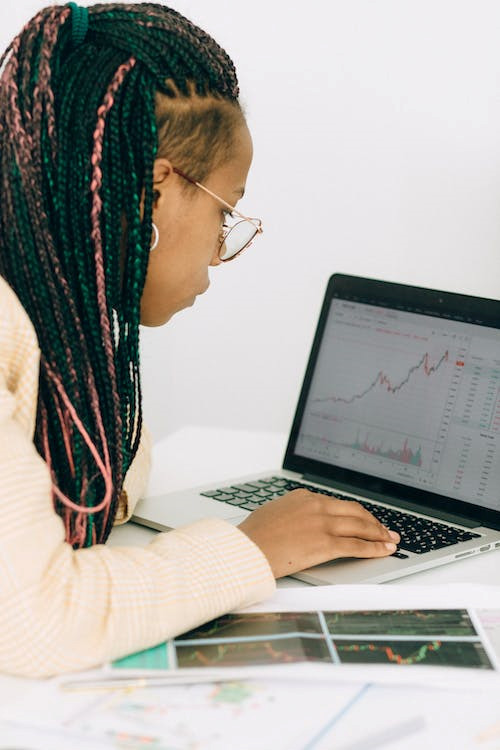
Definition Of Forex Trading
Forex trading is the buying and selling of foreign currencies. It's a financial market that allows investors to access different types of currency pairs, such as the Euro-U.S. dollar (EUR/USD) or Japanese yen-U.S. dollar (JPY/USD). This type of trading has become increasingly popular in recent years due to its high liquidity and low transaction costs.
A forex broker acts as an intermediary between individual traders and the global markets, providing them with real-time pricing information and facilitating their orders. Brokers can offer online platforms for trade execution – which allow users to buy or sell currencies directly from the platform – as well as other services like margin accounts and educational resources.
At its core, forex trading requires understanding how economic factors affect exchange rates, knowing when it’s most advantageous to enter into a trade, having reliable risk management strategies in place, and making sure you take advantage of available tools that help simplify your analysis process. The role of brokers in this process is paramount; they provide invaluable support for those looking to make informed decisions about their investments.
Different Types Of Brokers
Now that we have a good understanding of what Forex trading is, let's discuss the role of forex brokers in online trading. A broker plays an integral part in helping traders gain access to the foreign exchange market and make informed decisions when it comes to their investments. There are several types of brokers available for traders to choose from including ECN (Electronic Communications Network), STP (Straight Through Processing) and MM (Market Maker).
First, an ECN broker provides direct access to other market participants without any interference or manipulation by the broker itself. This type of broker allows traders to execute trades directly with liquidity providers such as banks, hedge funds, and large institutions. The benefits of using this type of broker include low spreads, fast execution speeds, and anonymity. However, they require higher deposits and may charge additional fees for withdrawals and deposits.
Second, STP brokers route orders through their own servers which connect them directly with liquidity providers. They offer similar advantages compared to ECN brokers but provide more flexibility when it comes to order size and can often accommodate smaller accounts than ECN brokers. Additionally, STP brokers tend to be less expensive due to fewer costs associated with running an electronic system.
Finally, Market Makers act as counterparty on all transactions made by clients who use their services. These brokers typically generate revenue from markups applied on top of interbank rates as well as commissions charged per transaction executed on behalf of their customers. They also provide better customer service since they do not rely solely on technology but instead employ dedicated personnel who can assist clients during times of need or difficulty navigating the platform interface. Although Market makers generally offer tighter spreads than ECN/STP brokers they may still incur slippage if there is high volatility in the currency markets - something worth noting for those looking for reliable execution speeds at all times.
In summary, each type of forex broker offers its own set of advantages depending on your individual needs so it’s important to research what works best for you before making a decision about which one you should go with. By doing this you will be able to select a suitable partner who can help you achieve success in your FX trading endeavors!

Advantages Of Using A Broker
Using a broker to facilitate online trading can provide investors with many advantages. To begin, brokers typically have access to more detailed market information than individual traders. This allows them to make better informed decisions when executing trades and better understand the risks involved in each transaction. Additionally, they are able to offer advice on how best to manage risk and profitability within their portfolios.
Another advantage of working with a broker is that they can work with multiple exchanges or platforms at once, allowing for diversification across different markets. This provides an opportunity to spread out potential losses while also increasing the chances of making profitable investments. Furthermore, some brokers may even be able to negotiate lower commissions for customers or offer discounts based on volume of transactions.
Finally, brokers can help reduce complexity when it comes to navigating complex financial regulations and legal requirements that must be taken into account when carrying out any type of investment activity. They will also ensure that all necessary paperwork is completed correctly and accurately so as not to expose the investor to unnecessary liability or penalties from regulatory authorities. As such, using a broker can greatly improve one’s chance of success in the world of online trading by both reducing costs and increasing profits over time.
Disadvantages Of Working With A Broker
Working with a broker can have some disadvantages. Firstly, the transaction fees charged by brokers can be quite high and they tend to take away from any profits made on trades. Furthermore, many brokers require that traders maintain certain minimum balances in order to engage in trading activities. This can limit how much capital an individual trader has access to and may also act as a deterrent for those who are new or unfamiliar with online trading. Lastly, it is important for traders to ensure that their chosen broker is reliable and trustworthy since there are unfortunately some fraudulent services out there. It pays to do research before selecting a broker to make sure your funds will be safe.
In summary, working with a broker involves potentially high transaction costs and minimum balance requirements which could affect profitability while also requiring careful selection of reputable services to avoid frauds. Therefore, it is wise for investors to carefully evaluate the pros and cons of utilizing such services when engaging in online trading.
Regulations In The Forex Market
Regulations in the forex market are an important factor that traders must consider when selecting a broker. Brokers must abide by certain regulations and policies, both at the national and international level, to ensure fair trading practices. These rules help protect investors from fraud or other unethical behavior.
At the national level, brokers are regulated by government agencies such as the Financial Conduct Authority (FCA) in the United Kingdom or the Commodity Futures Trading Commission (CFTC) in the US. They may also be subject to additional requirements from their respective country's financial regulator. For example, some countries require brokers to hold client funds in segregated accounts and operate under strict customer protection laws.
In addition to local regulations, most online brokers must adhere to guidelines set forth by international organizations like MiFID II or Dodd-Frank Act 2010 which enforce standards across multiple jurisdictions. These standards aim to promote safer markets for traders worldwide while providing greater transparency and consumer protections.
Overall, it is important that traders research a broker’s regulatory status prior to investing with them so they can feel confident their funds will be handled safely and ethically.
Selection Criteria For Choosing A Broker
Now that you understand the regulations in the forex market, it's important to look at what criteria should be used when selecting a broker. A broker is an essential part of online trading as they provide access to trading platforms and markets, set up trading accounts and execute trades. To get the best out of your experience with a forex broker, here are some things to consider:
First, check if the broker is regulated by local or international financial authorities. It's also important to ensure that the company has been around for a while; this will give you peace of mind knowing that your funds are safe with them. Additionally, make sure there’s customer support available so you can always contact them if needed.
The next factor to consider is fees and commissions charged by brokers on each trade. Different brokers have different fee structures based on how active you are in trading. Also take into account any additional costs such as platform subscriptions, data feeds and other services offered by brokers. Lastly, evaluate their order execution capabilities- quickness and accuracy are key metrics here.
In summary, choosing a reliable forex broker requires research and comparison across many factors - regulation status being one of the most important ones! Ensure that client safety protocols are followed along with reasonable cost structures before signing up with any broker

Comparison Between Ecn And Market Maker Brokers
When it comes to online Forex trading, two of the most common types of brokers are ECN and Market Maker. It's important for traders to understand the differences between these two broker types so they can choose the one best suited to their needs.
The primary difference between an ECN and a Market Maker is in how trades are executed. An ECN broker matches buy/sell orders with other market participants directly, while a Market Maker offers quotes from its own platform.
Both ECN and Market Maker brokers offer advantages that appeal to different types of investors, however each also has its drawbacks that should be considered before making any decisions about which type to use. For example, while ECNs provide more liquidity and faster order executions, they typically require larger initial investments due to both account size requirements as well as commission costs associated with every trade made through them. On the other hand, retail traders may find it easier to get started with a Market Maker since there are usually no commissions involved but this convenience often comes at the cost of wider spreads compared to those offered by ECNs. Ultimately, traders will need to weigh all pros and cons carefully before deciding which type of broker works best for their individual needs and objectives.
Leverage And Margin Requirements For Forex Trading
Once traders have chosen which type of broker they would like to trade with, it is time to understand the leverage and margin requirements. Leverage refers to a trader's ability to control large amounts of capital by using only small amounts of their own funds. For instance, if a trader has $2,000 in their account but decides to use 100:1 leverage for trading purposes, then this allows them to control up to $200,000 worth of currency. This can be very beneficial as it increases potential profits without increasing the risk significantly.
On the other hand, there are margin requirements that must also be taken into consideration when making trades. The amount required for each trade depends on both the size of the position and the level of leverage being used. If a trader does not meet these minimums then their positions will be automatically closed out. This means that having an adequate amount in one's account is essential if they want to remain active in forex trading.
In order to make sure that traders do not over-leverage themselves and end up incurring losses they cannot cover, brokers may set additional restrictions such as stop loss orders or limits on how much money can be risked per transaction. It is important that traders take these measures seriously and adjust accordingly so they don't exceed what they can handle financially. By doing this, traders can ensure that they stay within acceptable levels of risk while still gaining access to potentially lucrative markets via online brokers.
Execution Methodologies Used By Forex Brokers
Forex brokers use a variety of execution methodologies when trading online. These include market orders, limit orders, stop-loss orders, and trailing stops. Market orders are executed immediately at the best available price in the current market. Limit orders allow traders to set the maximum or minimum price they are willing to buy or sell an asset for; these can be used as entry points into positions. Stop-loss orders are placed with the intention of minimizing losses on trades by automatically closing them once a certain price has been reached. Trailing stops help manage profits by automatically adjusting the stop loss order according to changes in prices.
In addition, some forex brokers also offer algorithmic trading services that provide automated strategies based on technical indicators such as moving averages and support/resistance levels. Algorithmic trading can be beneficial for many different types of traders as it eliminates emotion from decision making and allows traders to reduce their risk exposure while still profiting off of short term movements in prices. Finally, some forex brokers may offer additional tools such as economic calendars which provide information regarding major news events that could potentially affect currency values. These tools can help traders stay informed about upcoming developments and plan their trading accordingly.
Security Measures Taken By Forex Brokers
Forex brokers play an important role in online trading, as they provide access to the foreign exchange market. To ensure traders have a positive experience with their services, many forex brokers take preventive measures when it comes to security. These steps are taken to protect both traders and themselves from malicious attacks or fraudulent activities.
The first measure most forex brokers take is implementing a secure connection between their servers and traders’ computers. This is done by using Secure Socket Layer (SSL) encryption technology which scrambles data sent through the internet so that no one can intercept it. Additionally, some brokerages require two-factor authentication for login attempts, which requires users to enter a code generated on their phone in addition to their username and password.
Forex brokers also use robust monitoring systems to detect any suspicious activity carried out by clients or other third parties. If such behaviour is spotted, the broker will investigate thoroughly before taking action against the responsible party. They may even contact law enforcement if necessary. Furthermore, many brokerages keep customer funds separated from company funds in separate accounts at banks located in different countries, making sure those funds are always safe and accessible should anything happen to the brokerage itself.
Frequently Asked Questions
What Is The Minimum Amount Of Capital Required To Open An Account With A Forex Broker?
Getting started in online forex trading requires an understanding of the role of a forex broker. One question that often arises is what is the minimum amount of capital required to open an account with a forex broker? This article will provide information on this topic, as well as discuss other considerations for investors when choosing their broker.
Most brokers have a set minimum deposit requirement before they allow traders to start trading. The size of the deposit can vary depending on the type and size of your chosen broker, so it’s important to do some research beforehand. Generally speaking, many brokers require at least $250-500 USD or equivalent in another currency. However, some may also offer lower deposits depending on various factors such as account type and leverage offered by that particular broker.
In addition to looking into the minimum balance requirements for opening an account with a forex broker, there are several other things one should consider when selecting a broker: customer service, fees and commissions, available platforms and tools, educational materials provided, etc. It's important to take all these aspects into consideration when making your decision since each trader has different needs and preferences when it comes to investing in foreign exchange markets.
By taking the time to look closely at both the benefits and drawbacks associated with any given brokerage firm, you'll be able to make sure you're getting exactly what you need out of your investment experience—without spending too much money upfront or sacrificing safety through poor regulation standards.
Are Forex Brokers Regulated In All Countries?
Forex brokers are an integral part of online trading, but they come with their own set of regulations. A key question that traders often ask is whether forex brokers are regulated in all countries. The answer to this depends on the country and its specific laws governing financial services.
Generally speaking, most countries have some form of regulation for forex brokers. Here's a quick look at what you need to know:
It's important for traders to understand the regulatory landscape before opening an account with any broker. Looking into specifics like minimum capital requirements and customer protection policies can help traders make informed decisions about which broker is best suited for them. Additionally, it can also provide peace of mind knowing that your money is well-protected should something go wrong during your trading experience.
What Is The Difference Between Trading With A Forex Broker And Trading With A Bank?
When it comes to trading foreign currencies, many people wonder what the difference is between doing so with a forex broker and a bank. The key differences lie in cost, convenience, speed and customer service.
Cost-wise, trading through a forex broker typically involves lower transaction costs than going through a bank or other financial institution. This can be especially beneficial for those who are just starting out and don't have large amounts of capital available. Additionally, brokers often provide access to more markets than banks do—which means traders can take advantage of more opportunities when they're ready.
In terms of convenience, working with a broker offers greater flexibility since most will offer online accounts that allow traders to quickly buy and sell currency pairs anytime from anywhere. Brokers also typically offer faster execution speeds compared to traditional banking institutions. This makes it possible for investors to close trades quicker—which is important if you want to maximize potential profits while minimizing losses due to market volatility.
Finally, one of the biggest advantages of using a forex broker over dealing directly with a bank is the level of customer support offered by the latter. Most brokers will provide personalized advice and guidance on best practices as well as educational resources such as tutorials and webinars; something you won’t find at your local branch office! Ultimately this helps ensure that their clients make sound decisions when it comes time to execute trades in order to meet their goals successfully.
What Are The Risks Associated With Trading With A Forex Broker?
When it comes to trading in the foreign exchange market, many people wonder what risks come with using a forex broker. After all, banks have long been an option for traders looking to make investments. But how does one compare?
Using a forex broker has its own unique set of risks that should be considered before entering into any transactions:
In summary, trading with a forex broker carries certain risks such as lack of security/regulation, counterparty risk, leveraged exposure and poor execution quality that must be taken into account prior to making any decisions about whether or not it is right for you.
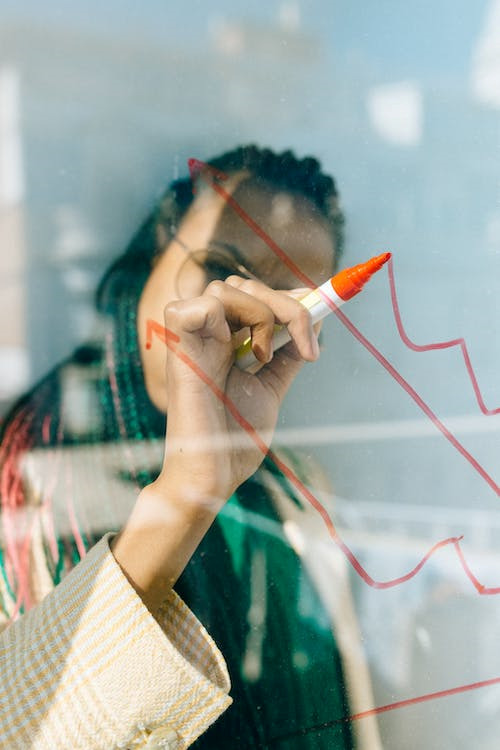
Are There Any Fees Associated With Opening And Maintaining An Account With A Forex Broker?
When trading with a forex broker, it's important to understand any fees associated with opening and maintaining an account. These costs can include setup or maintenance fees, commission, spreads and other charges that may be incurred during the trading process. While there are no hard and fast rules about what types of fee structures exist for different brokers, here is an overview of some key points to keep in mind:
It's important to do your research before committing to any particular broker so that you know exactly how much you'll need to budget for their services. Make sure you get quotes from multiple sources too - just like shopping around for any type of financial service, comparing different offers can help ensure that you're getting the best deal possible. With all these factors taken into consideration, having an understanding of what kind of fees are involved should give traders greater confidence in their chosen broker partner going forward.
Conclusion
In conclusion, it is important to understand the role of forex brokers in online trading. Knowing the minimum amount of capital required to open an account with a forex broker and whether they are regulated in all countries can help inform traders of their options. Furthermore, understanding the differences between trading with a forex broker or a bank, as well as any fees associated with opening and maintaining an account can also be beneficial. Lastly, being aware of the risks involved when trading with a forex broker will help mitigate possible losses for investors. In sum, researching these topics before engaging in online trading can lead to more successful investments.
0 notes
Text
5 Key Factors To Consider When Choosing A Forex Broker
Are you interested in trading the world’s biggest financial market, but aren’t sure where to start? Forex trading can be a great way to make money and grow your wealth – if done correctly. The key to success is selecting the right forex broker for your needs. But with so many brokers operating out there, how do you know who to choose? Here we will discuss the 5 key factors that should be taken into account when choosing a forex broker.
The foreign exchange (forex) market is huge, far bigger than any other financial market. It trades 24 hours a day across all international time zones, allowing traders from around the globe access to this lucrative investment opportunity. Whether you are new to forex trading or an experienced trader, it pays dividends to take time researching potential brokers before investing your hard-earned cash.
When it comes down to making a decision on which broker is right for you, there are five essential points of consideration: regulation, spreads & commissions, leverage & margin requirements, customer service and user experience. In this article, we look at each factor in detail and provide some tips on what questions you should ask yourself when deciding on a forex broker. So let's get started!
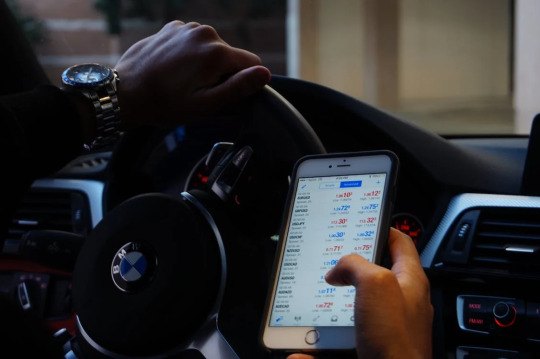
Reputation
Choosing a forex broker is an important decision, and it's crucial to take the time to do your research. One key factor to consider when selecting a broker is reputation. It's essential to find out how long they've been in business, their regulation status, customer service record, and reviews from other traders who have used them before.
To start with, you should check the length of time that the broker has been operating for and whether or not they are regulated by any governing bodies. The longer a broker has been around, the more trustworthy they can be considered as it shows that they have had enough success over a period of time to remain in business. Additionally, if a broker is regulated then this demonstrates that they are held accountable for following certain standards which need to be adhered to in order for them to maintain their license.
It's also wise to look at online customer reviews from those who have already used the services provided by the forex broker you're considering. This will give you insight into what sort of experience other clients have had, both good and bad. Being aware of these points could help make sure that you choose someone reliable who provides excellent service and support throughout your trading journey.
Regulatory Compliance
When choosing a forex broker, regulatory compliance is of utmost importance. It's critical to ensure that the broker you choose has been approved and regulated by the applicable governing body in the country they operate from. This means that your money will be safe with them and their services are legitimate.
Here are some key points to consider when evaluating a forex broker for regulatory compliance:
Doing your own due diligence on this matter can help protect you from potential scams or frauds related to trading foreign currencies. Make sure you take the time to research each prospective broker thoroughly before making an informed decision. Be sure to read all terms and conditions carefully so that you understand exactly how things work should something unexpected occur while working with them.
Fees And Charges
When it comes to fees and charges, there are several key factors you need to consider when choosing a forex broker. Firstly, check the spreads offered by different brokers as this will have an impact on your profits or losses in the long run. Also look at any additional costs such as commission or platform fees. Some brokers may charge a fee for making deposits or withdrawals which can be costly if you are trading frequently. Finally, make sure that all fees and commissions are clearly stated in writing before opening an account with a broker so that there won't be any surprises down the line. It's important to do your research and find out what other traders think about the fees charged by various brokers so you can make an informed decision.
Leverage Options
When choosing a forex broker, it is important to consider the available leverage options. Leverage allows traders to open larger positions than their accounts would otherwise allow. This can result in greater potential profits and losses, so understanding how much leverage is offered by a broker is essential.
The amount of leverage offered typically ranges from 1:1 up to 500:1 or higher depending on the broker and account type. Higher amounts of leverage typically come with additional costs associated with them, such as increased spreads and commissions. Therefore, one should carefully weigh out the cost-benefit before selecting a particular level of leverage.
When deciding which type of leveraged trading best suits your needs, it's important to take into consideration your risk tolerance, trading strategy, capital base and desired returns. By taking these factors into account when researching brokers you will be able to make an informed decision about which option fits your individual situation best.
Payment Methods Accepted
Now that you understand the leverage options available to traders, it's time to consider the payment methods accepted by the forex broker. This is an important factor to keep in mind when selecting a brokerage because different brokers offer different payment methods and may have restrictions or fees associated with them.
The most common payment method among currency trading platforms is through credit cards, as they are fast and secure. Most online brokers also accept wire transfers from banks and other financial institutions, but these usually take longer to process compared to credit card payments. Additionally, there are some brokers who offer alternative methods such as e-wallets like PayPal or Skrill for deposits and withdrawals. Depending on your needs, it’s best to research what type of payment method works best for you before choosing a broker.
It’s essential that customers know how much money can be withdrawn at once and what kind of withdrawal fee will apply for each transaction. Some brokers might require minimum amounts for deposit and withdrawal requests which should be taken into account before making any decisions. It’s also important to make sure that all the funds transferred between accounts are protected by encryption technology so that personal information remains safe during transactions.
When deciding on a forex broker, ensure their chosen payment option matches your own preferences while keeping security paramount throughout every step of the process - from initial payments to ongoing withdrawals of profits earned through successful trades!
Trading Platforms Offered
When choosing a forex broker, it’s important to consider the trading platforms offered. Forex brokers typically offer two types of trading platforms: web-based and desktop applications. Web-based trading platforms can be accessed from any device with an internet connection, while desktop applications have to be downloaded onto your computer.
It is also important to look at the features available on each platform. Many brokers offer proprietary software which makes it easier for traders to manage their accounts and make trades quickly without having to leave the platform. Look out for features such as charting tools, market news, analysis tools, automated trading systems and account management capabilities that may help you trade more effectively.
Make sure you are comfortable using the platform before committing to an account with a particular broker. You should try out different demo versions of the platform provided by potential brokers so you know what type of user experience they provide before making a decision. Also check if there are any additional fees or restrictions associated with specific platforms prior to signing up with a broker.
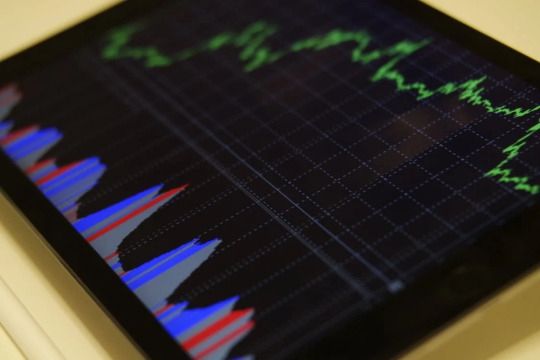
Customer Support Availability
Customer service is an important factor to consider when choosing a forex broker. It's essential that the broker provides customer support in the form of phone, email and/or online chat so you can get assistance with any inquiries quickly. In addition, it's beneficial if the broker offers multi-lingual customer support as this allows for better communication between you and the broker.
Service
Availability
Phone
24/7
Email
12 Hours
Online Chat
24/7
By looking at the table above, we can see that availability is one key factor to consider when evaluating your options. Ideally, you want a broker who offers 24/7 phone support and online chat along with 12 hour email response times. When researching brokers, make sure to check what kind of customer service they offer; look into how long customers typically have to wait before getting help and read reviews from other users to ensure that their customer service team delivers on its promises.
To summarize, great customer care should be a top priority when selecting a forex broker – always research their customer service policies thoroughly before making a decision. Make sure they provide adequate contact methods (phone, email or online chat) and are available during reasonable hours. Don't forget to read user reviews too!
Demo Account Availability
Moving on from the importance of customer support availability in a forex broker, demo account availability is also an important factor to consider. A demo account allows traders to practice trading with virtual funds and can be a great way for new traders to get acquainted with different currency pairs and market conditions before investing real money. It's also useful for experienced traders who want to test out strategies without taking any financial risks.
It's important to note that some brokers offer only limited access or restricted features when it comes to their demo accounts, so it’s always wise to check these details before committing. If you're looking for more comprehensive simulative experiences then look out specifically for brokers offering unlimited and unrestricted use of their demo accounts, as this will give you greater freedom in testing out potential strategies.
The ability to open up multiple demo accounts is another bonus if you are considering several different brokers at once and would like further assurance about how they work prior to opening up live accounts with them. Allowing you not only the opportunity to familiarize yourself with the ins-and-outs of each platform but giving you the chance exercise your own judgement in order make informed decisions regarding which broker works best for you and your specific needs.
Research Tools Provided
When choosing a forex broker, it's important to consider the research tools they offer. A good broker will have powerful charting and analytical tools to help traders make informed decisions. Here are three factors that can aid in your search for quality research:
By considering these three factors when researching brokers, you'll gain valuable insight into the type of services offered by each potential provider and determine which one best meets your needs as a trader.
Security Of Funds
Moving on from the research tools provided, another important factor to consider when choosing a Forex broker is security of funds. It's essential to ensure that your money will be held in segregated accounts and protected by reliable regulatory bodies such as the Financial Conduct Authority (FCA).
Yes
No
Segregated Accounts?
✔️
❌
FCA Regulated?
✔️
❌
The safety of client deposits should always be at the forefront when selecting a forex broker, so make sure they have strict KYC procedures in place and are compliant with anti-money laundering regulations. Ensure you read up on their Terms and Conditions before investing any capital. Also, look into whether they offer negative balance protection or other forms of investor compensation schemes – this can provide an extra layer of security if something goes wrong.
It’s paramount to pick a broker who takes measures for safeguarding every penny invested - because no one wants to lose their hard earned cash! So take some time before committing to a certain provider and double check all the credentials mentioned above. Ultimately, it pays off to do proper due diligence before engaging with any financial institution.
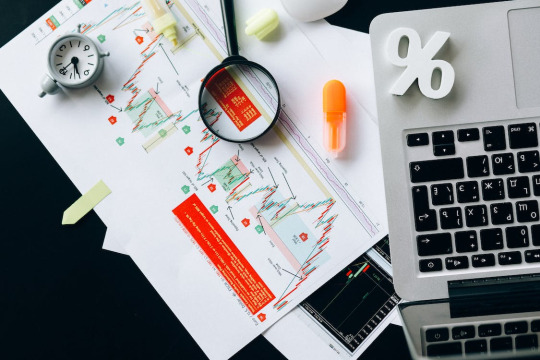
Frequently Asked Questions
How Can I Ensure That My Funds Are Secure?
When it comes to choosing a Forex broker, security is paramount. It’s essential that you make sure your funds are safe and secure before investing in any trading activity. Here's what you should look out for:
These three points can ensure that your investments are safeguarded when selecting a Forex broker of your choice. To further reduce risk, it may also be beneficial to invest with more than one broker – diversification helps spread potential losses across different markets and currencies. By taking these precautions into consideration, traders will have peace of mind knowing their funds are well protected when engaging in online currency trading activities.
Are There Any Hidden Fees Or Charges I Should Be Aware Of?
When it comes to forex trading, one of the most important factors to consider is fees and charges. Are there any hidden fees or charges that a trader should be aware of? It's essential for traders to understand all costs associated with their chosen broker in order to make an informed decision about which provider will best meet their individual needs.
It's important for traders to do some research before signing up with a broker. Many brokers will have varying fee structures, so it's worth comparing different options as they can vary widely depending on the type of account you're opening and how often you'll be trading. Make sure to read the terms carefully, too - some brokers may charge additional fees for services such as data access or even deposits and withdrawals.
Besides checking out the fees charged by your preferred broker, it's also wise to look into customer reviews and complaints from other traders who've used them in the past. This way, you can get a better understanding of their service quality and whether or not they consistently offer competitive rates. Ultimately, this information can help inform your decision-making process when choosing a reliable forex broker.
Is There A Minimum Deposit Requirement To Open An Account?
When it comes to choosing a Forex broker, one of the most important questions to ask is whether or not there's a minimum deposit requirement. Knowing this information beforehand can help you decide if the broker is right for your trading needs and budget.
The answer will vary depending on which brokerage you're looking at; some may require no initial deposit while others impose higher limits. Those with lower requirements are often more accessible to new traders who don't have a large capital base yet. However, brokers that demand larger deposits are typically better suited for those with significant experience in foreign exchange markets and/or substantial funds available for investment.
It's also worth noting that some brokers offer additional benefits when opening an account with them, such as bonuses or other types of incentives. These offers might be appealing enough to make up for any increased minimum deposit amount. Ultimately, understanding what each broker requires from customers should be part of your research process before committing to a particular platform.
No matter how much money you have available, take the time to compare different options carefully so you can make an informed decision about which Forex broker best meets your individual needs and goals.
What Type Of Customer Support Is Available?
When choosing a forex broker, it's important to consider the type of customer support available. After all, if you have questions or need help with your account, having someone from the company accessible is key. Here are three things to look for when researching a broker's customer service:
Having access to reliable customer service can make a big difference in your experience as a trader. Whether you're just starting out or already experienced in the markets, being able to get help right away is invaluable. Don't forget this factor when selecting your online brokerage; taking time to research what kind of customer service they provide could save you lots of hassle down the line!
Is The Trading Platform User-Friendly?
When it comes to choosing a forex broker, one key factor to consider is the user-friendliness of their trading platform. It's important that you feel comfortable using the software and understand how trades are initiated as well as monitored. To ensure you have an enjoyable experience when trading on your chosen forex broker’s platform, here are some points to take into account:
It's also beneficial to know what type of customer support is offered by the broker. Can they be contacted 24/7 in case of any queries or technical issues? Do they offer other resources such as webinars, seminars and videos for educational purposes? You want to make sure that help will always be at hand if ever needed. Finally, depending on how experienced you are with foreign exchange markets, certain features may be more suited for your needs than others. For instance, those who require access to a large selection of currency pairs may need a broker that offers advanced charting tools together with different types of orders which can facilitate complex strategies. On the other hand, novice traders might find automated trading systems advantageous regarding risk management and trade execution efficiency. In summary, when selecting a brokerage firm for online forex trading it pays off to do adequate research beforehand so that you make an informed decision based on your individual requirements.
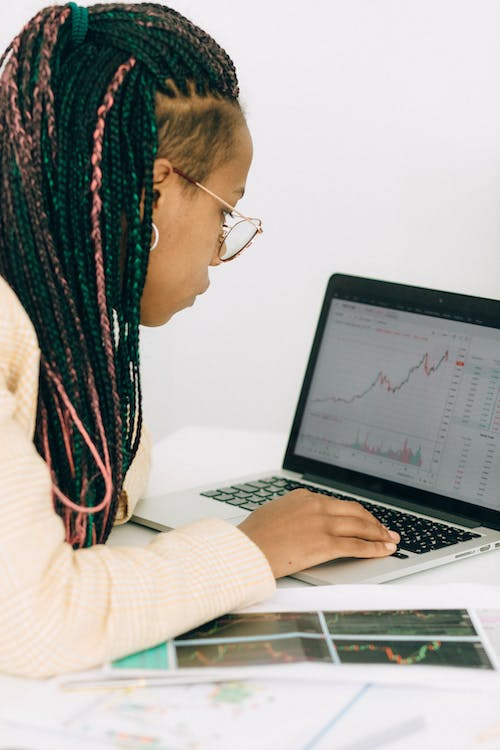
Conclusion
In conclusion, choosing a forex broker can be an intimidating experience. But if you consider the five key factors we discussed here, it doesn't have to be. Make sure you feel comfortable with your broker's security measures so that your funds are safe and secure. Be aware of any hidden fees or charges associated with opening an account, as well as what type of customer support is available should you need help at any time. Also make sure there isn't a minimum deposit requirement before opening an account and that their trading platform is user-friendly for beginners. If you take these things into consideration when selecting a forex broker, I'm confident that you'll find one that meets all of your needs.
1 note
·
View note